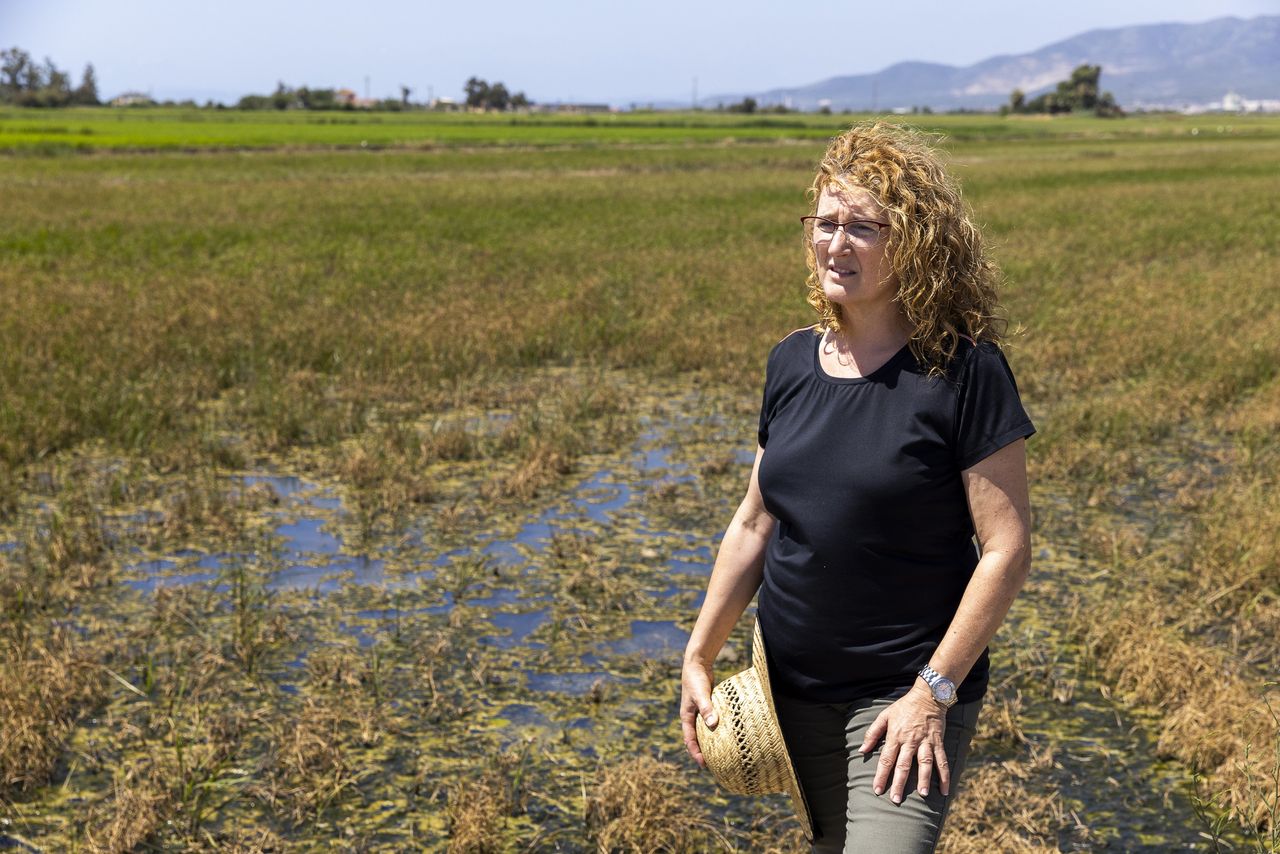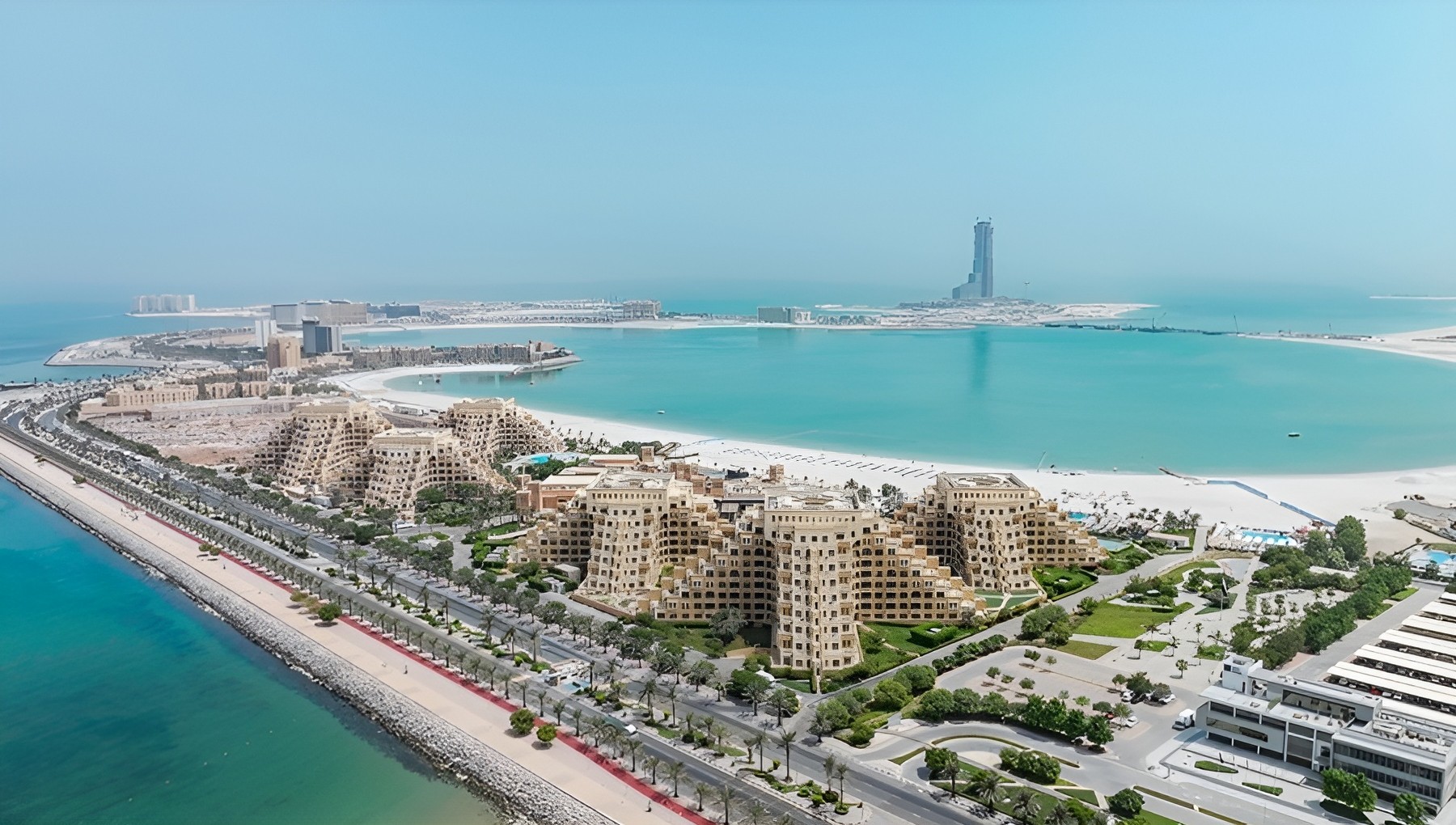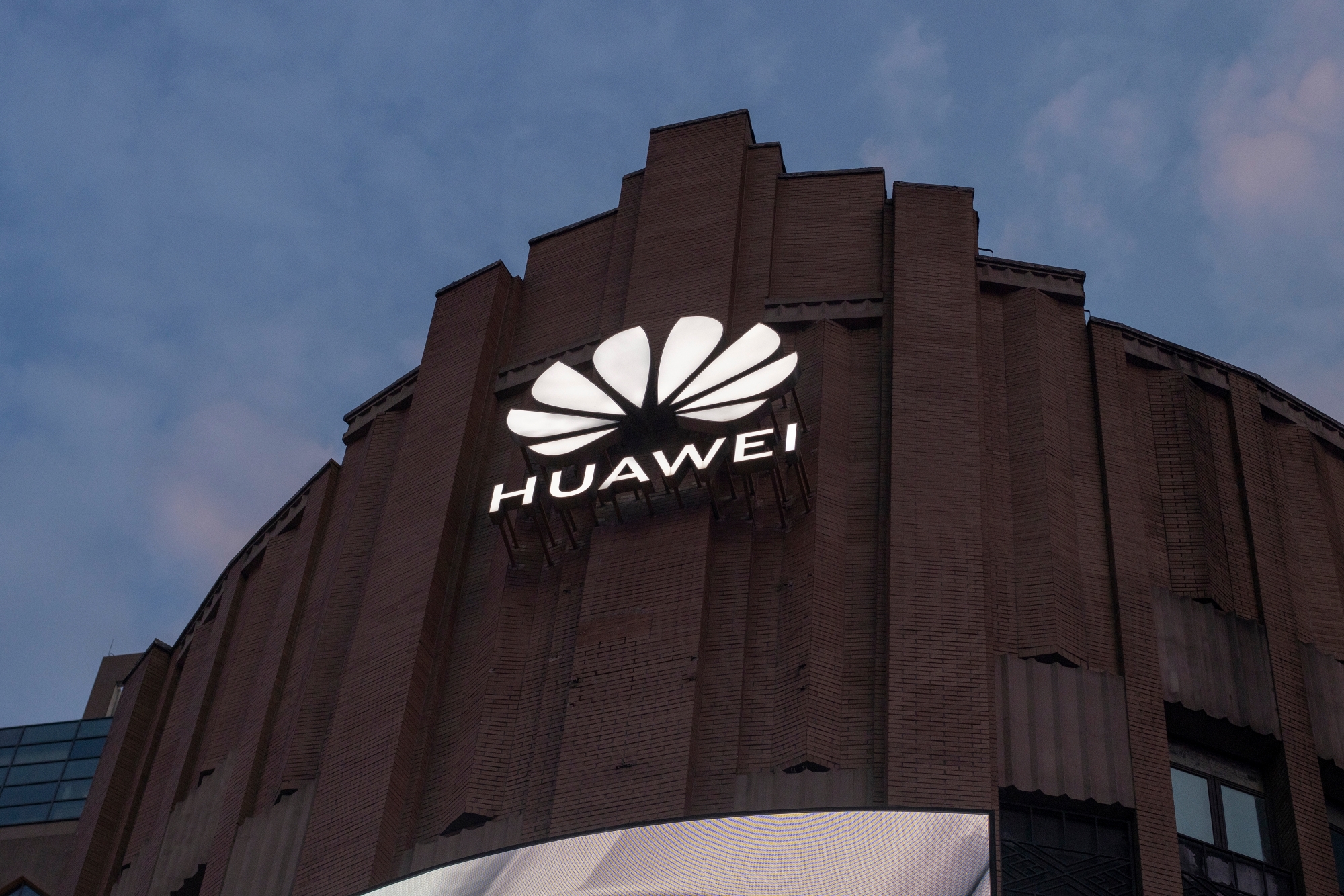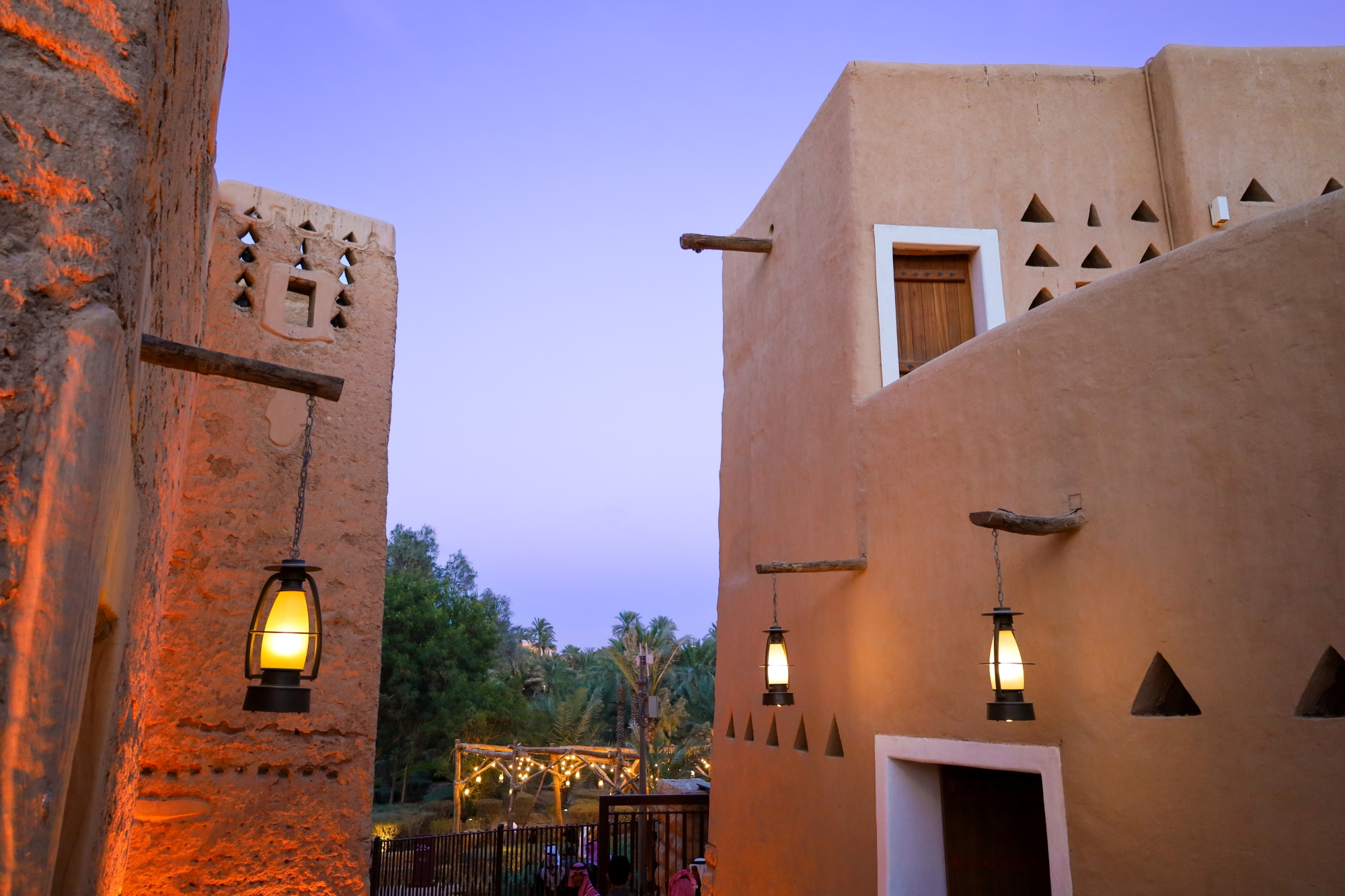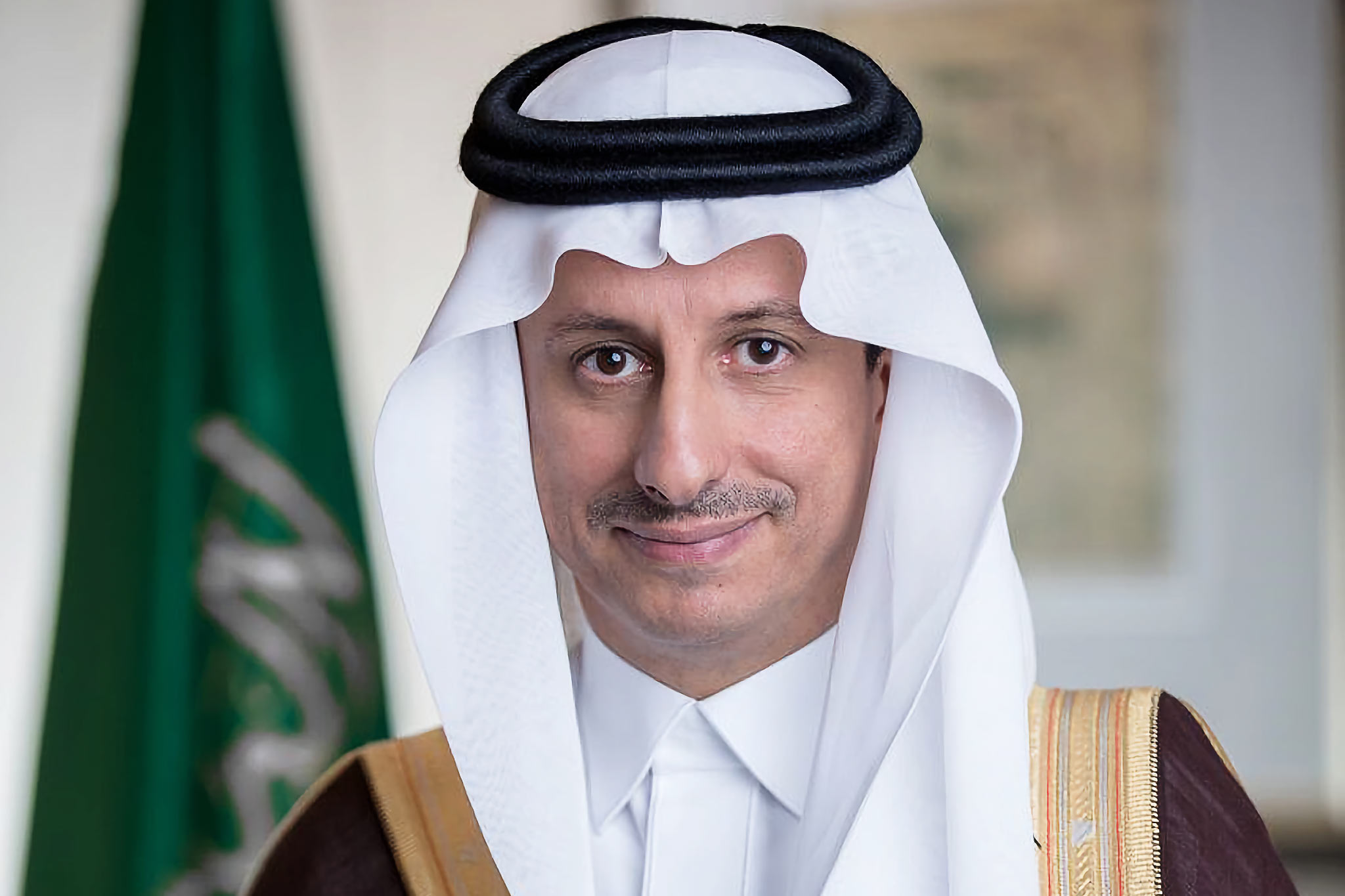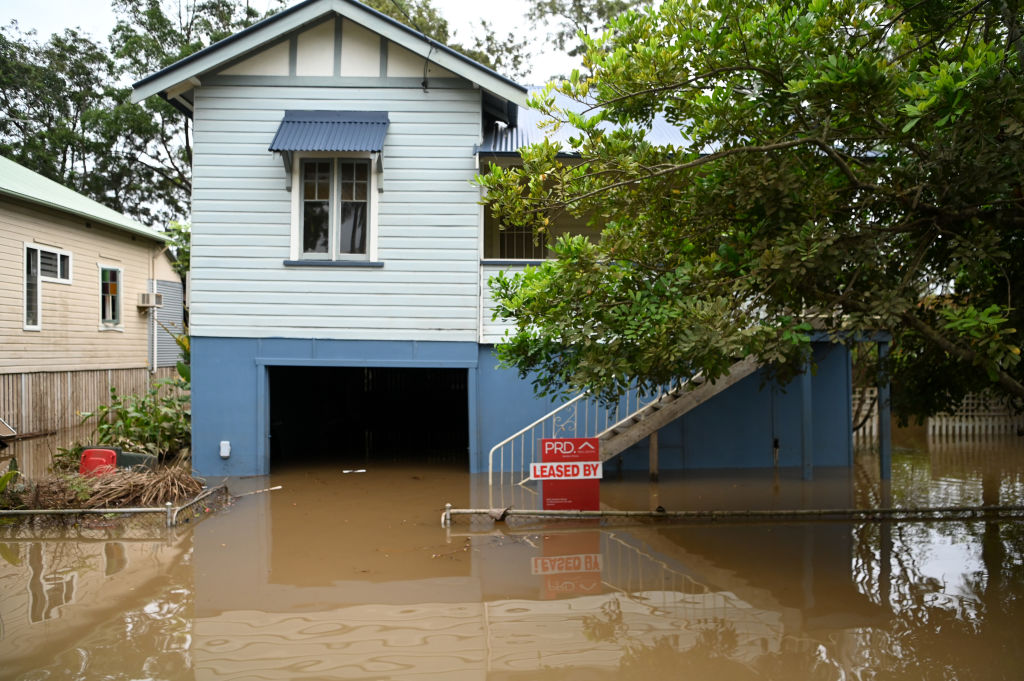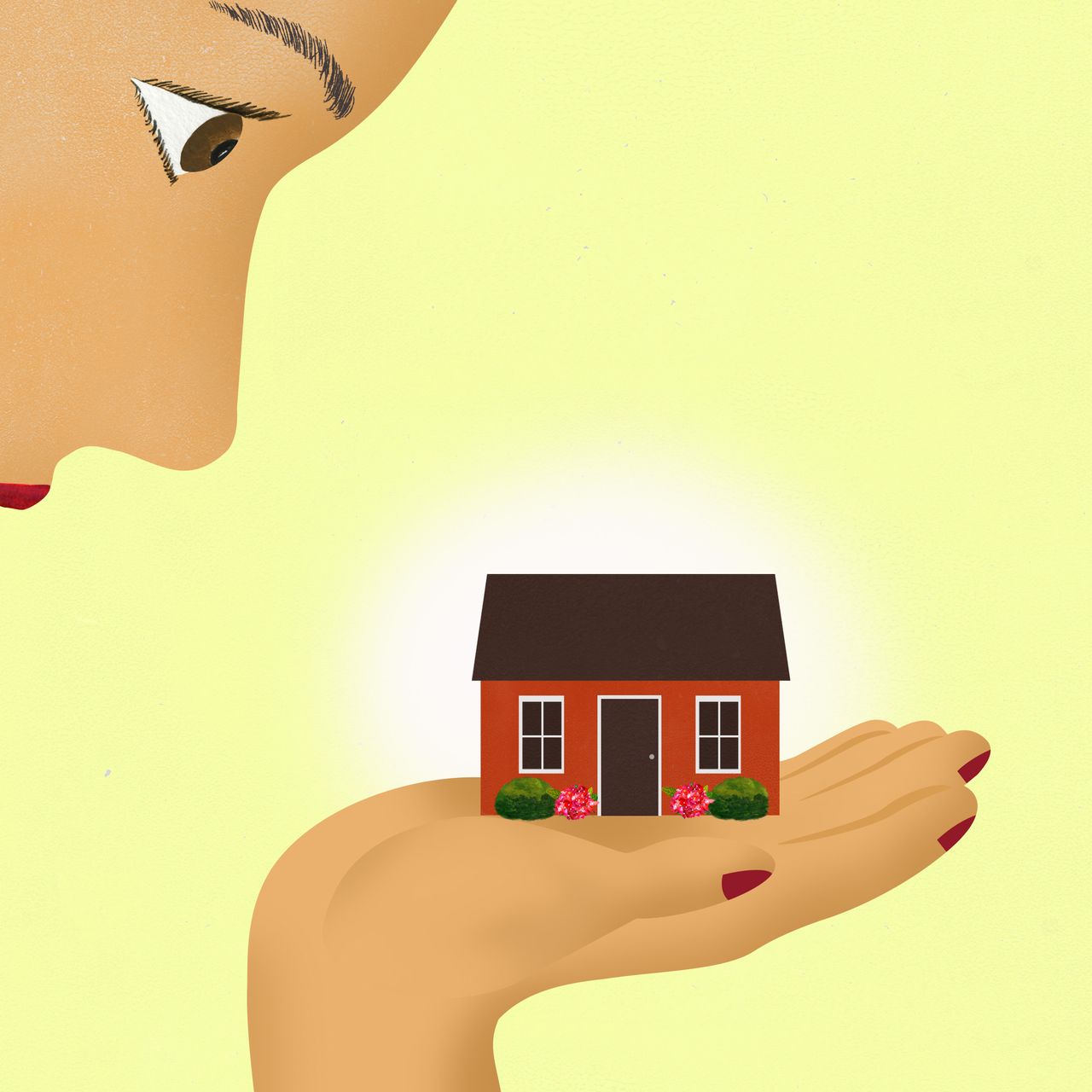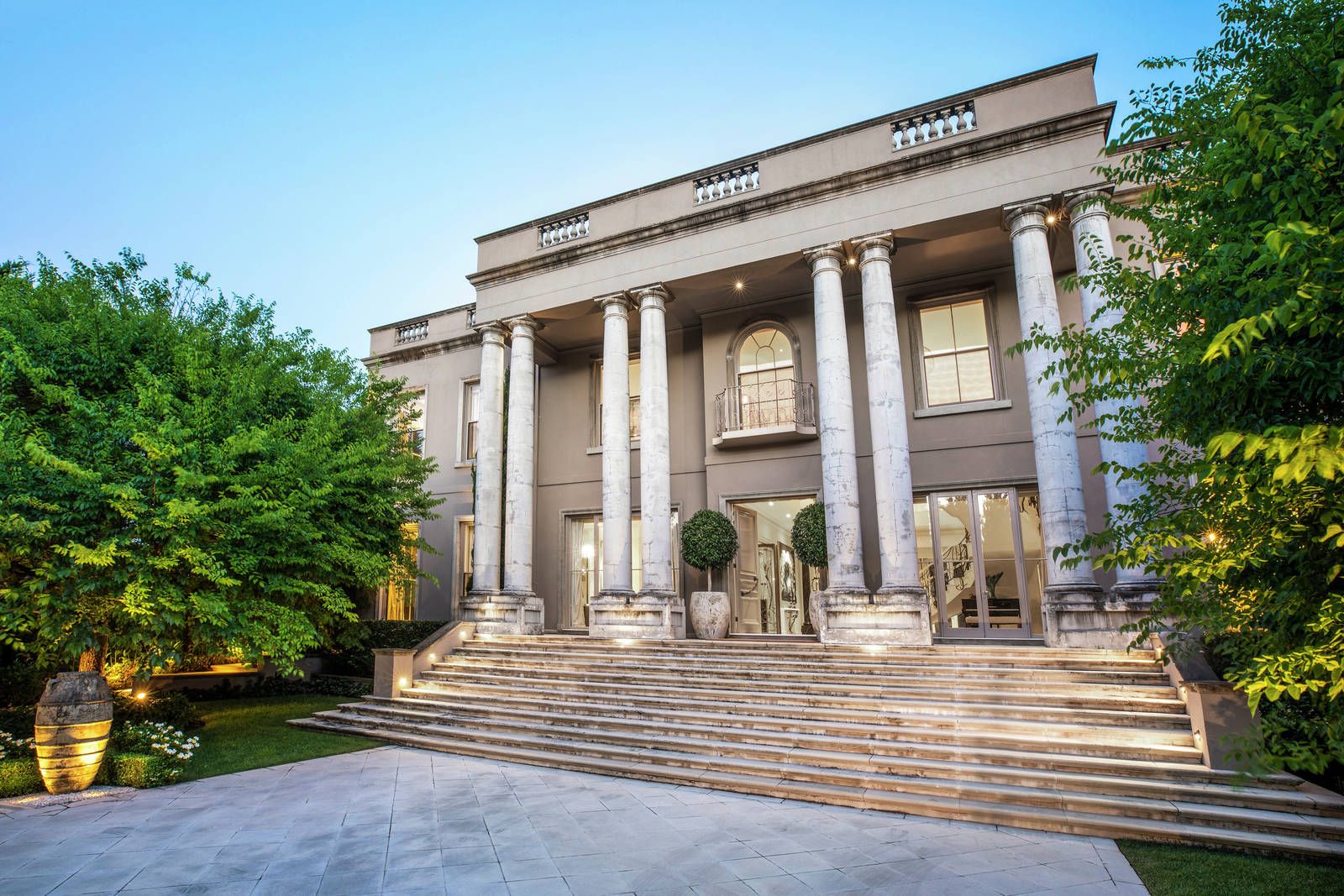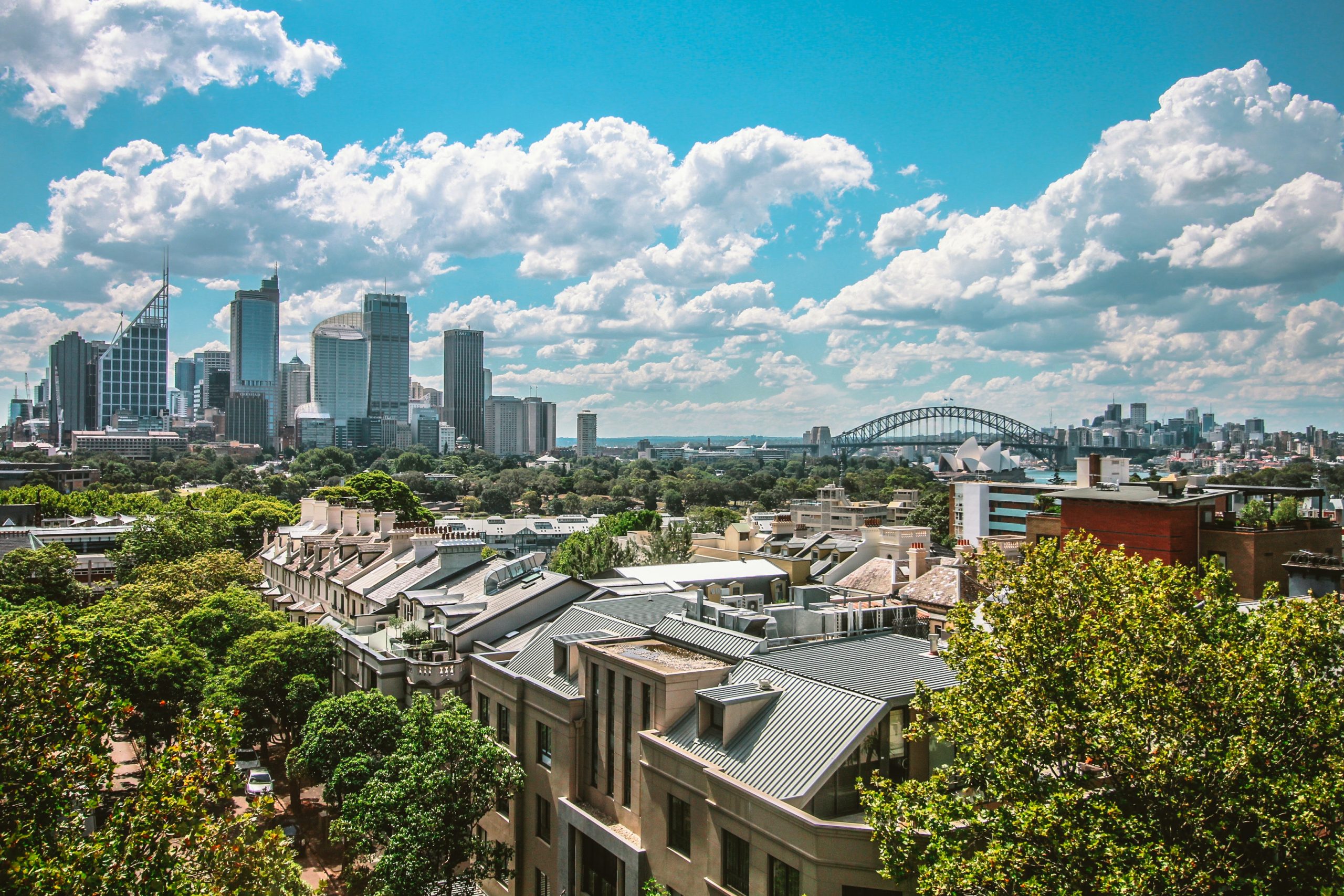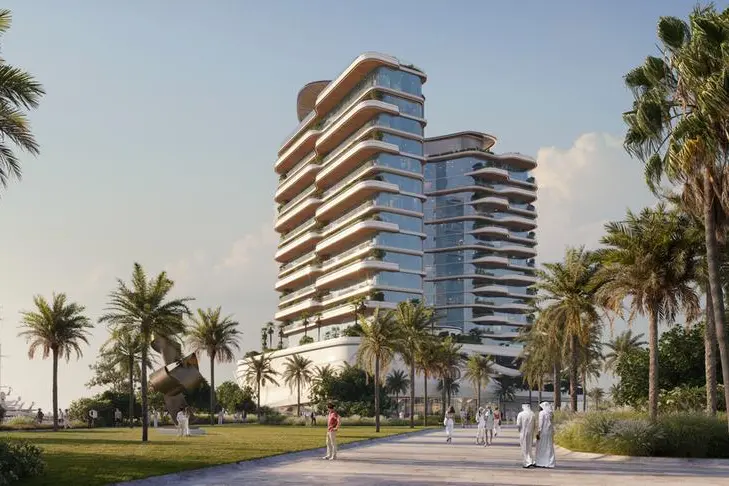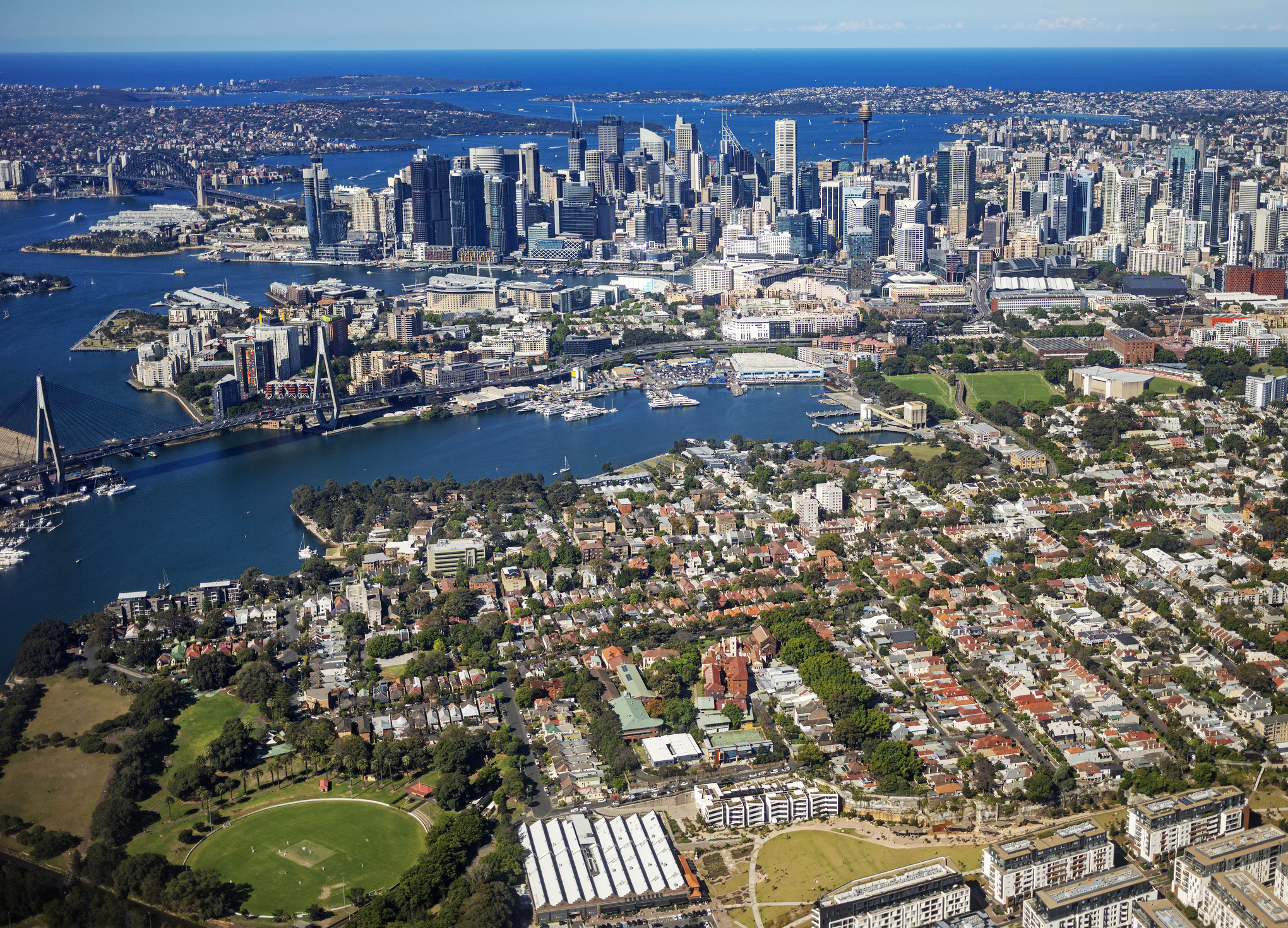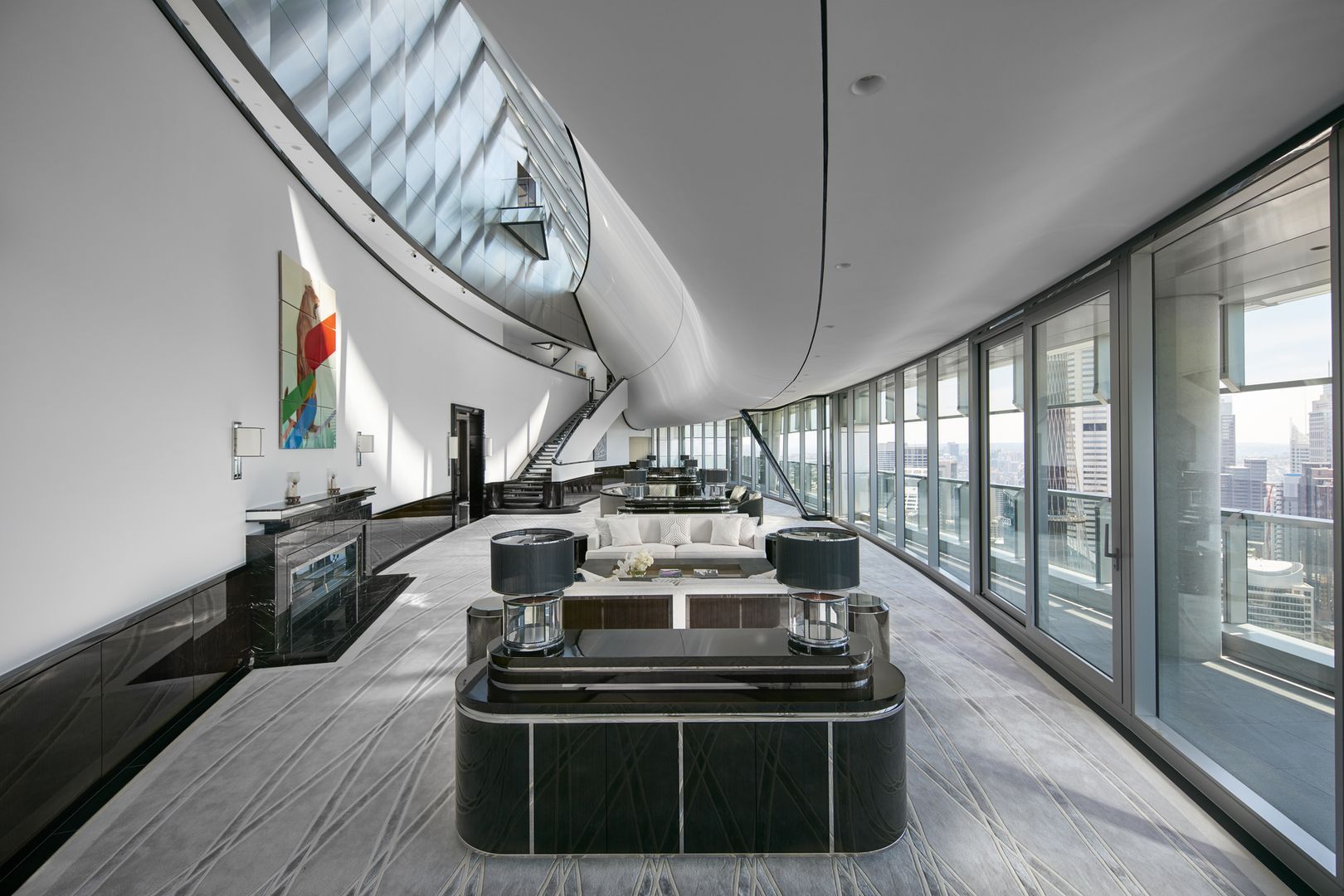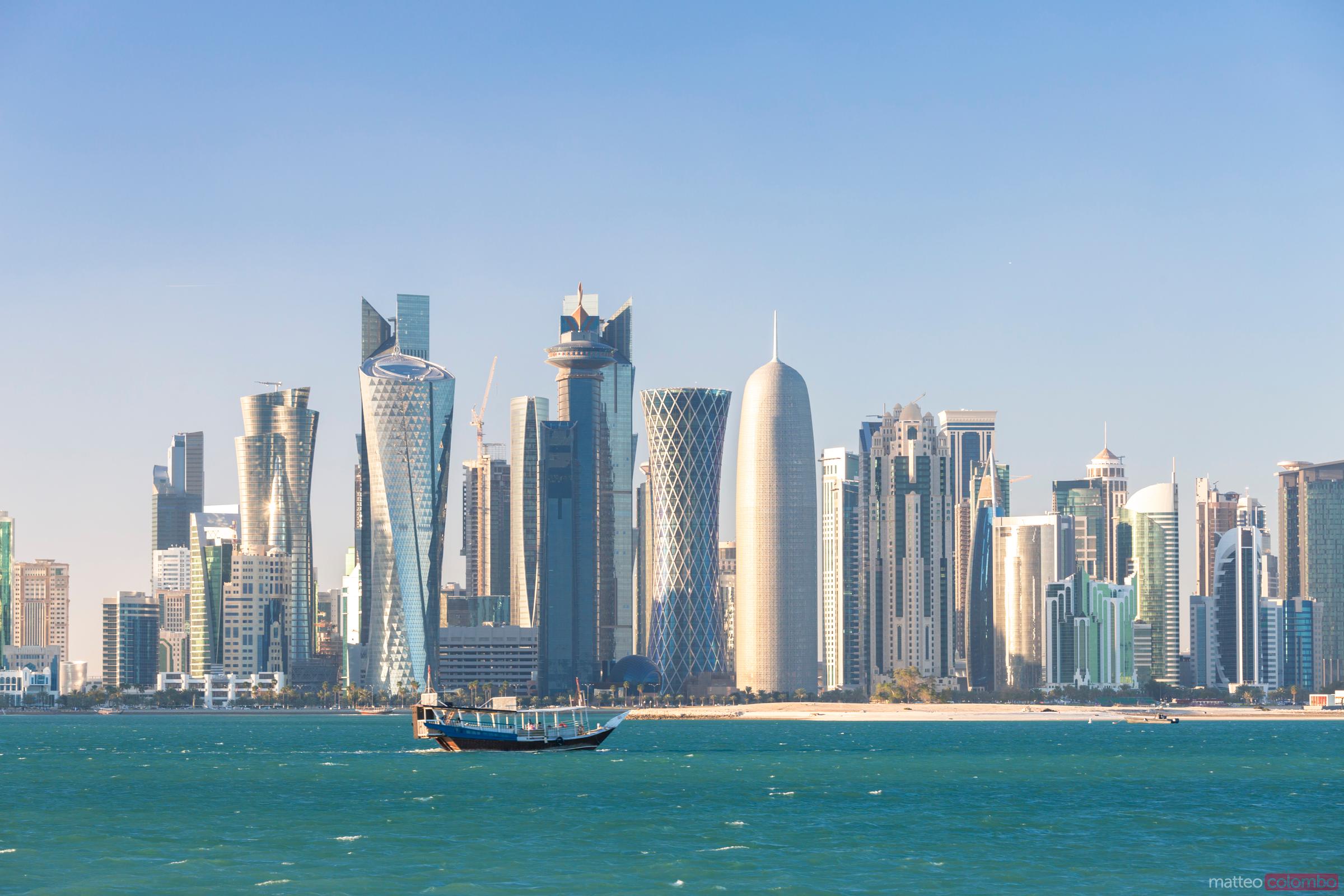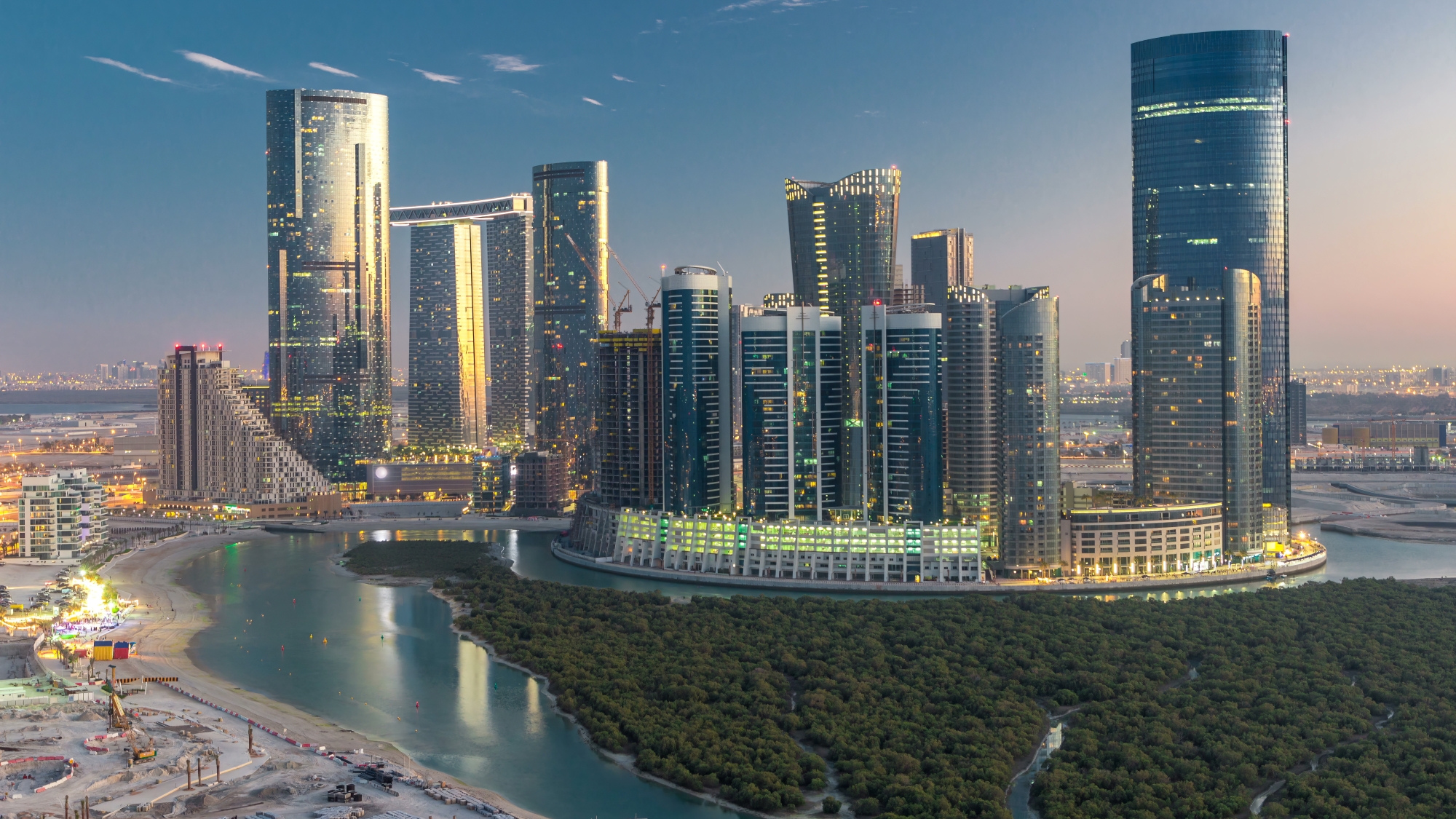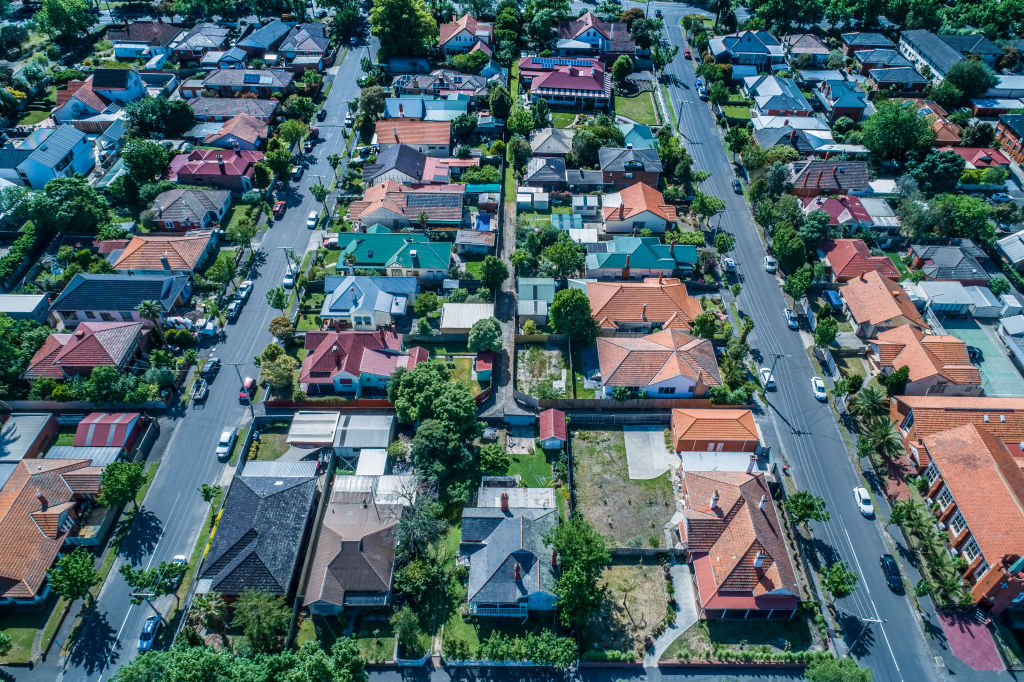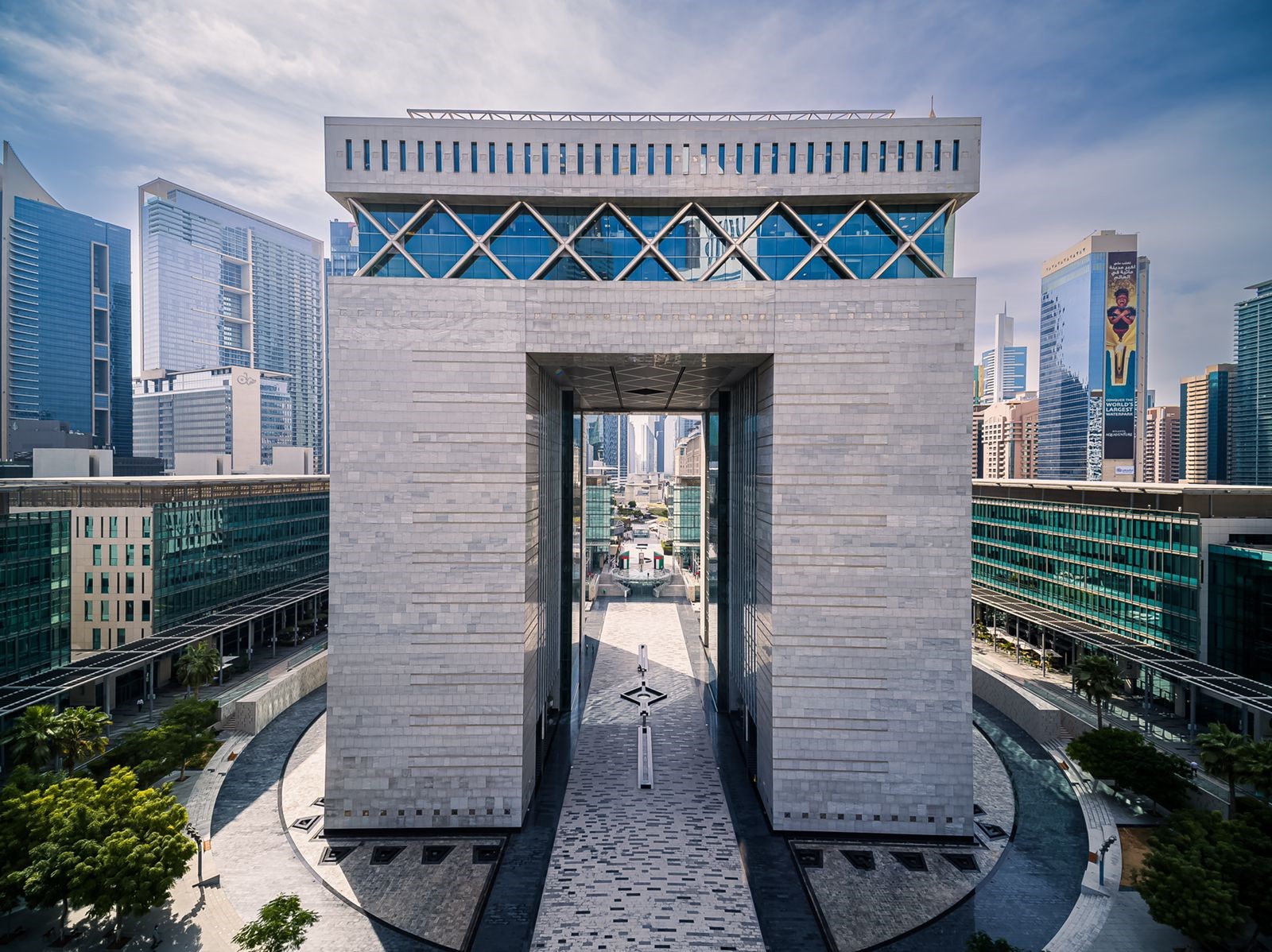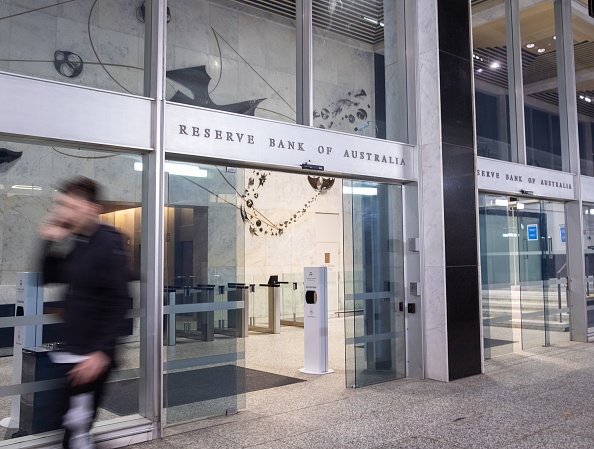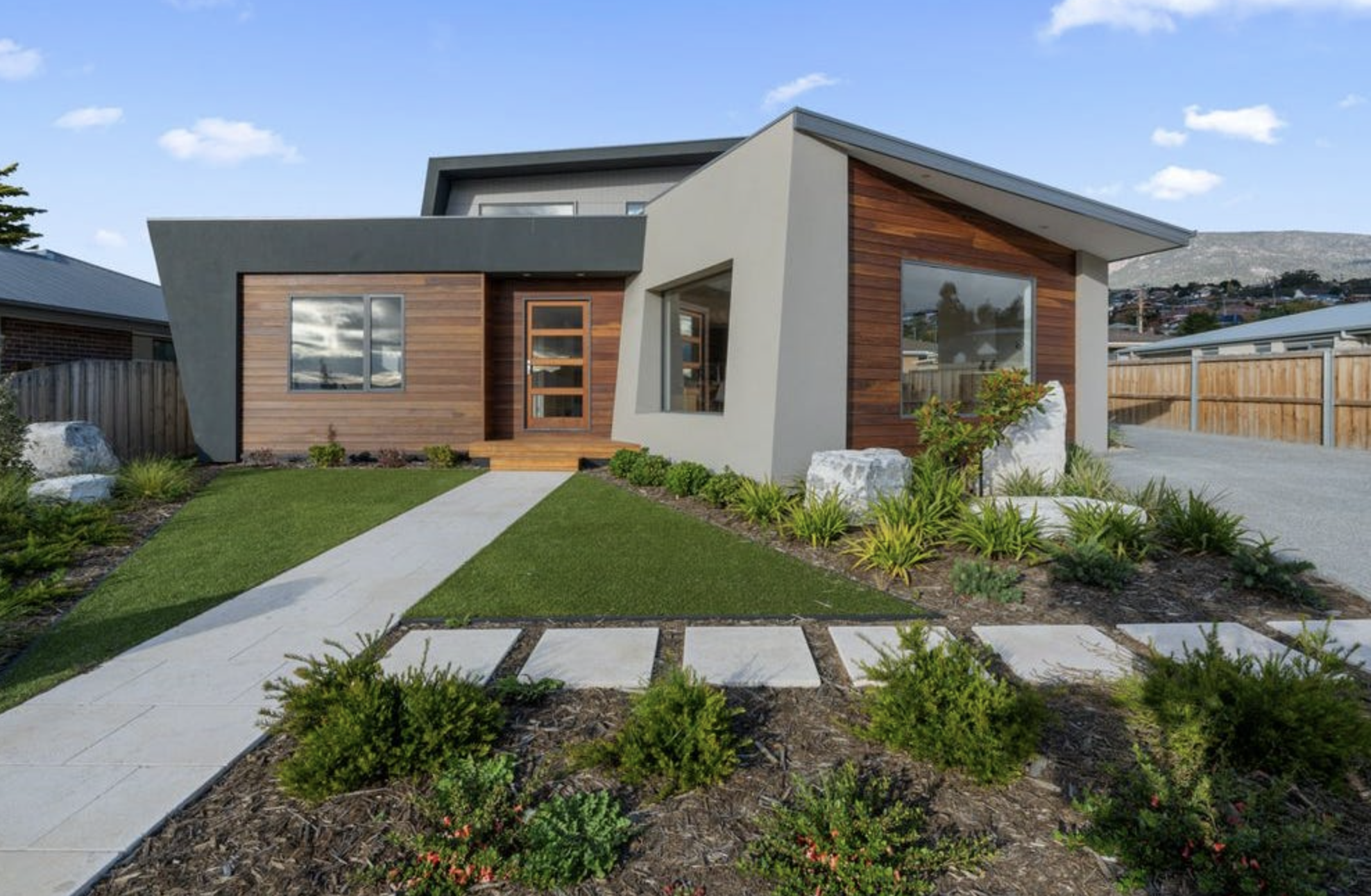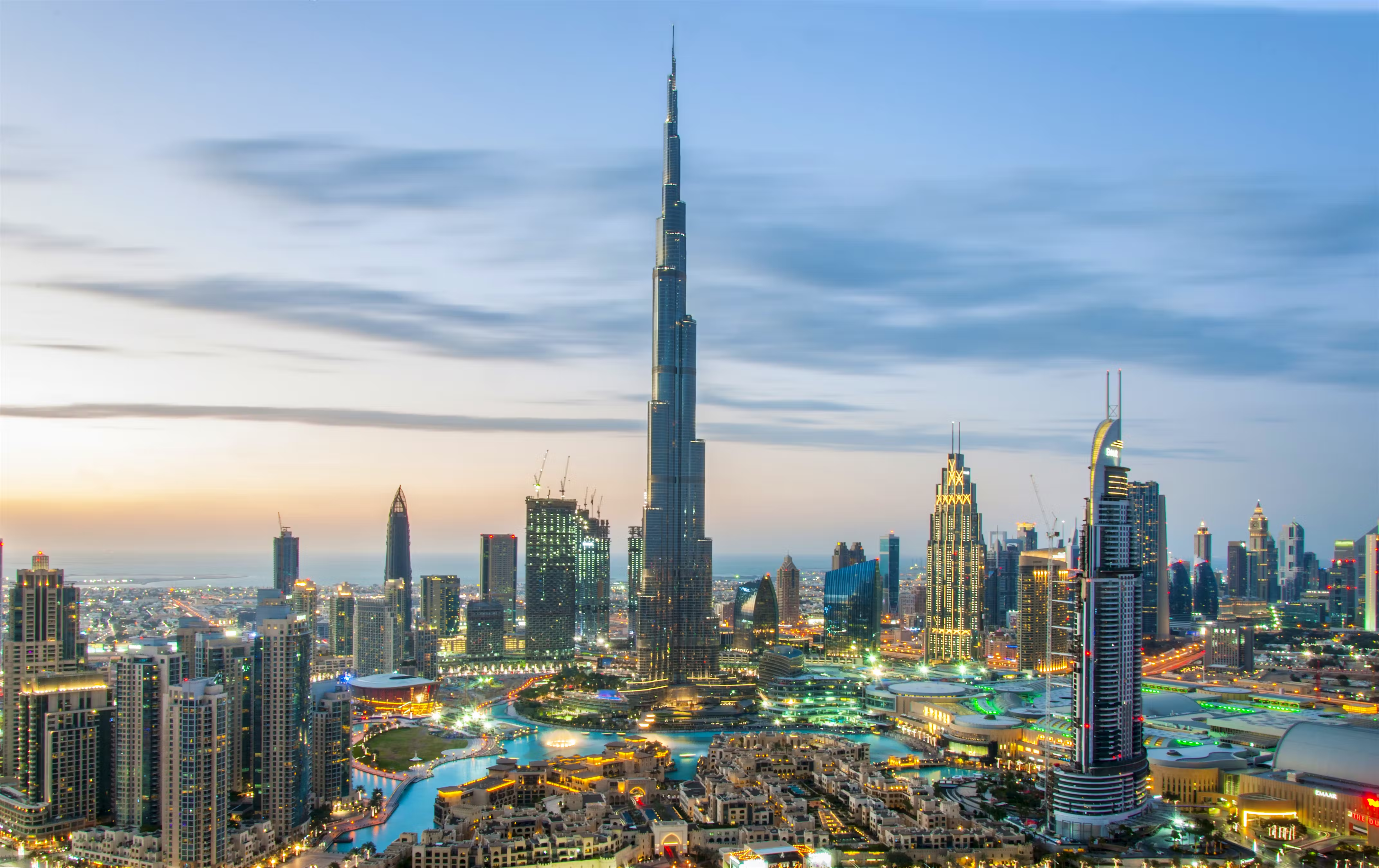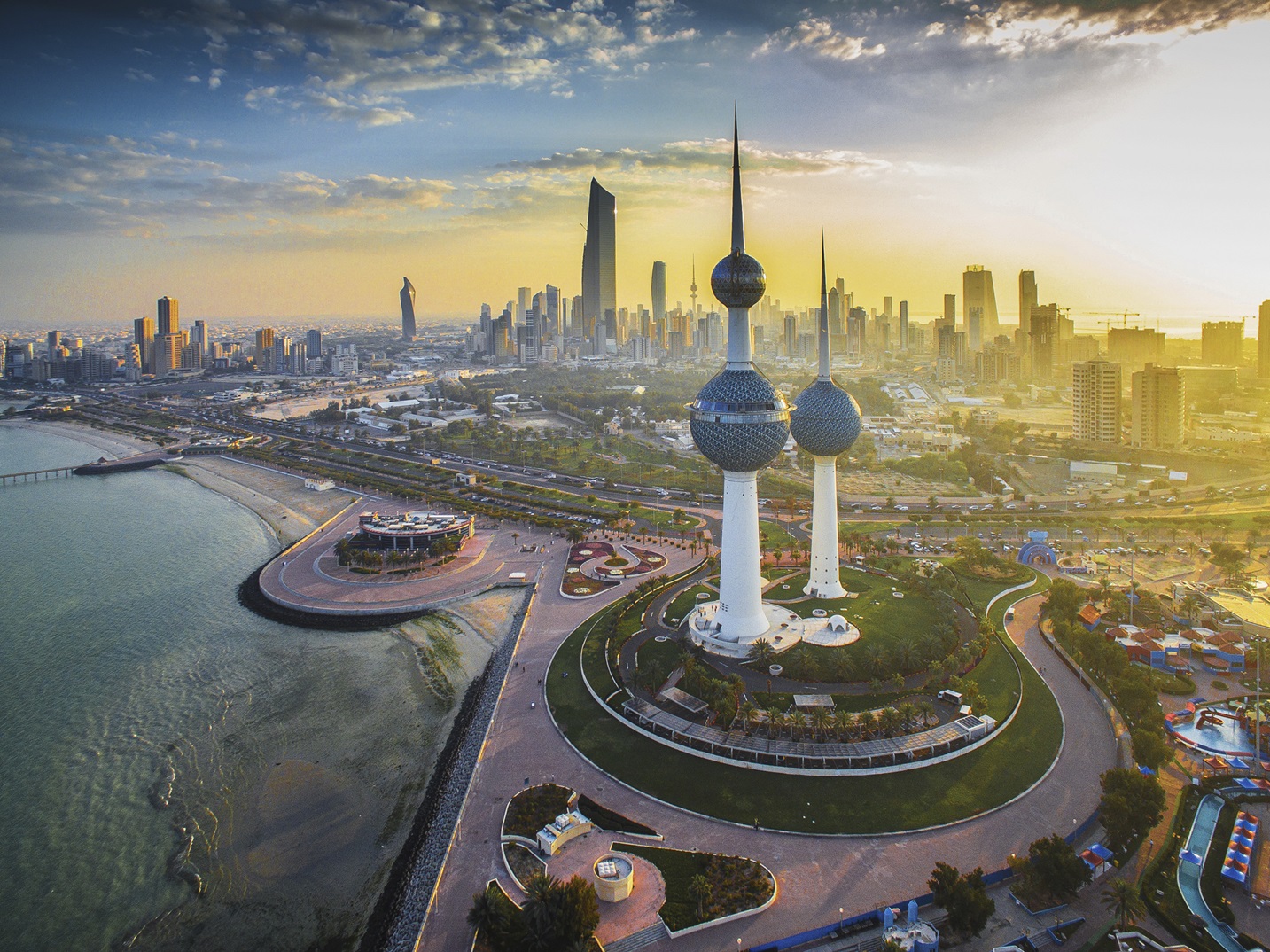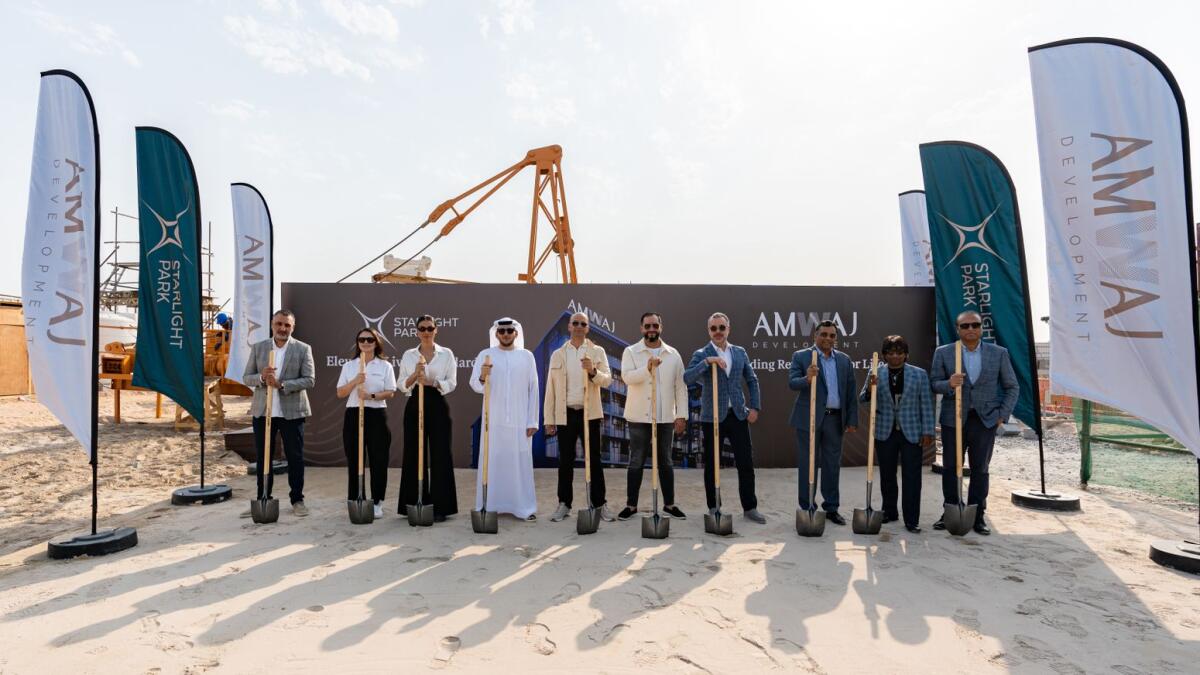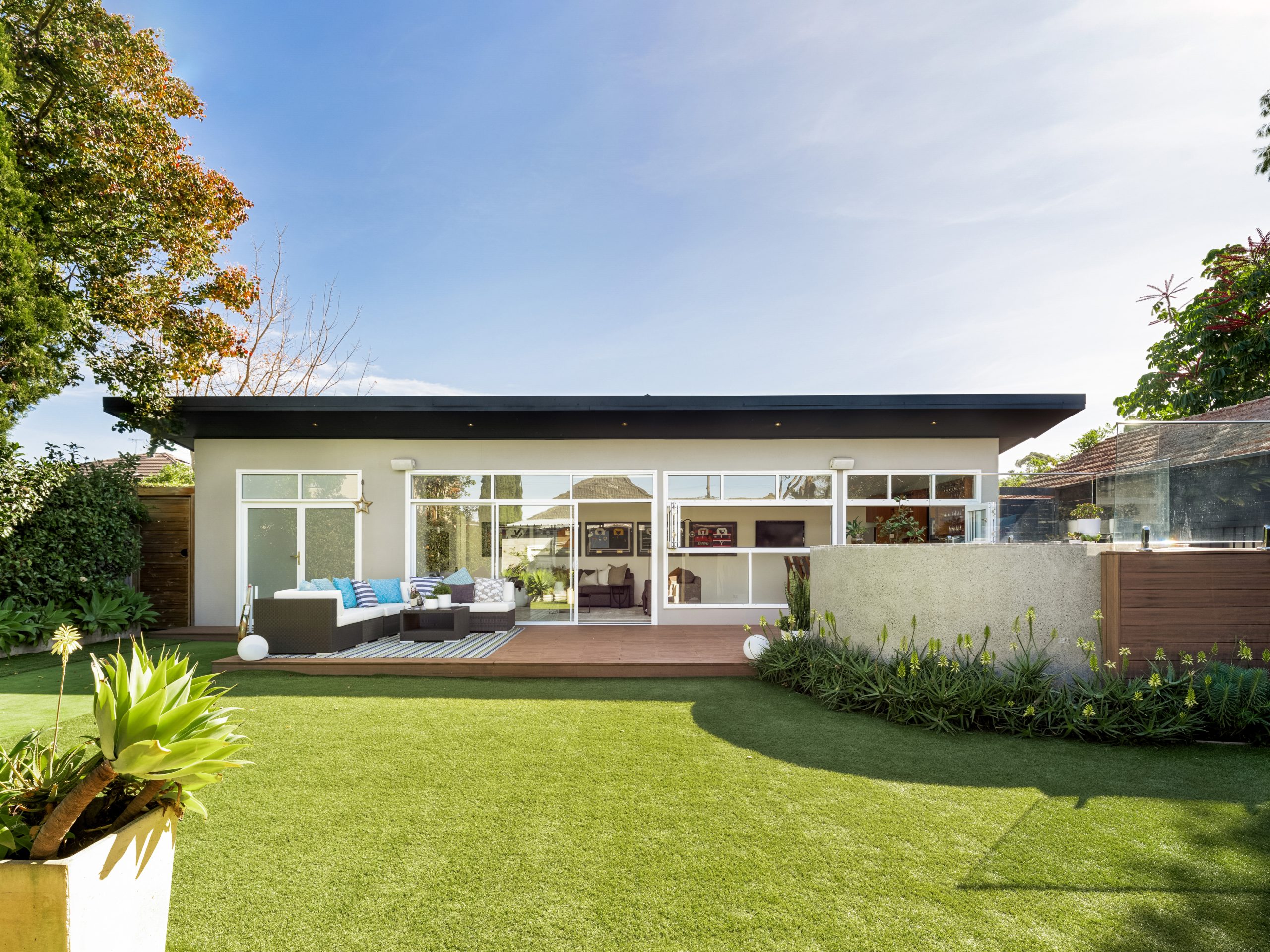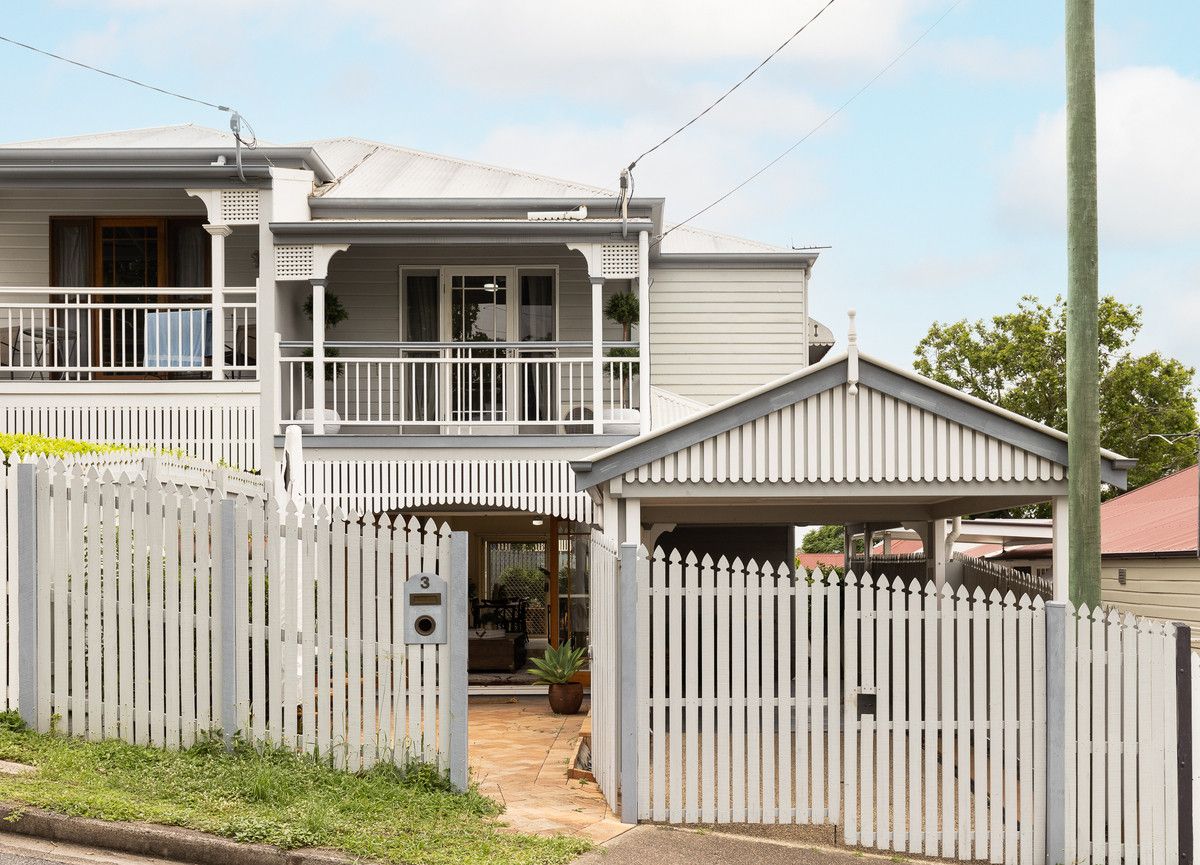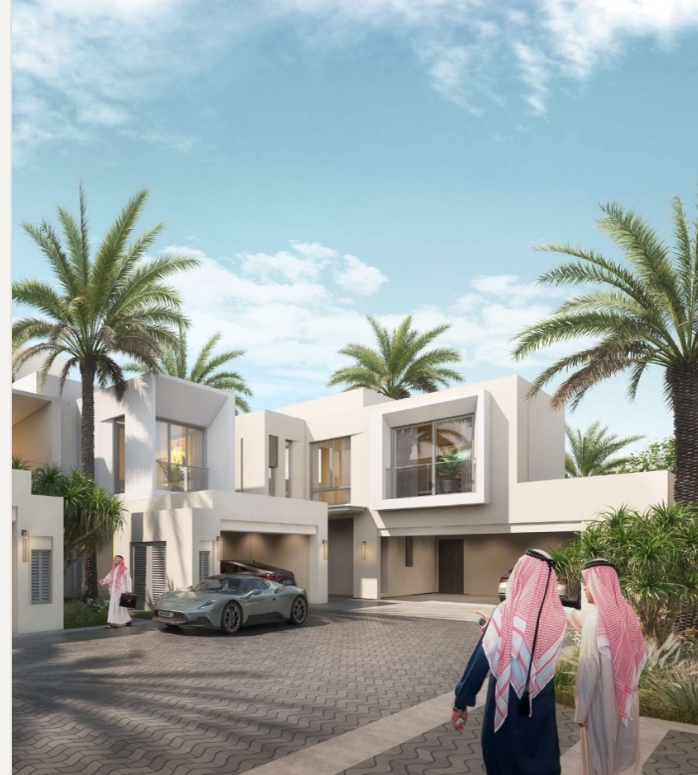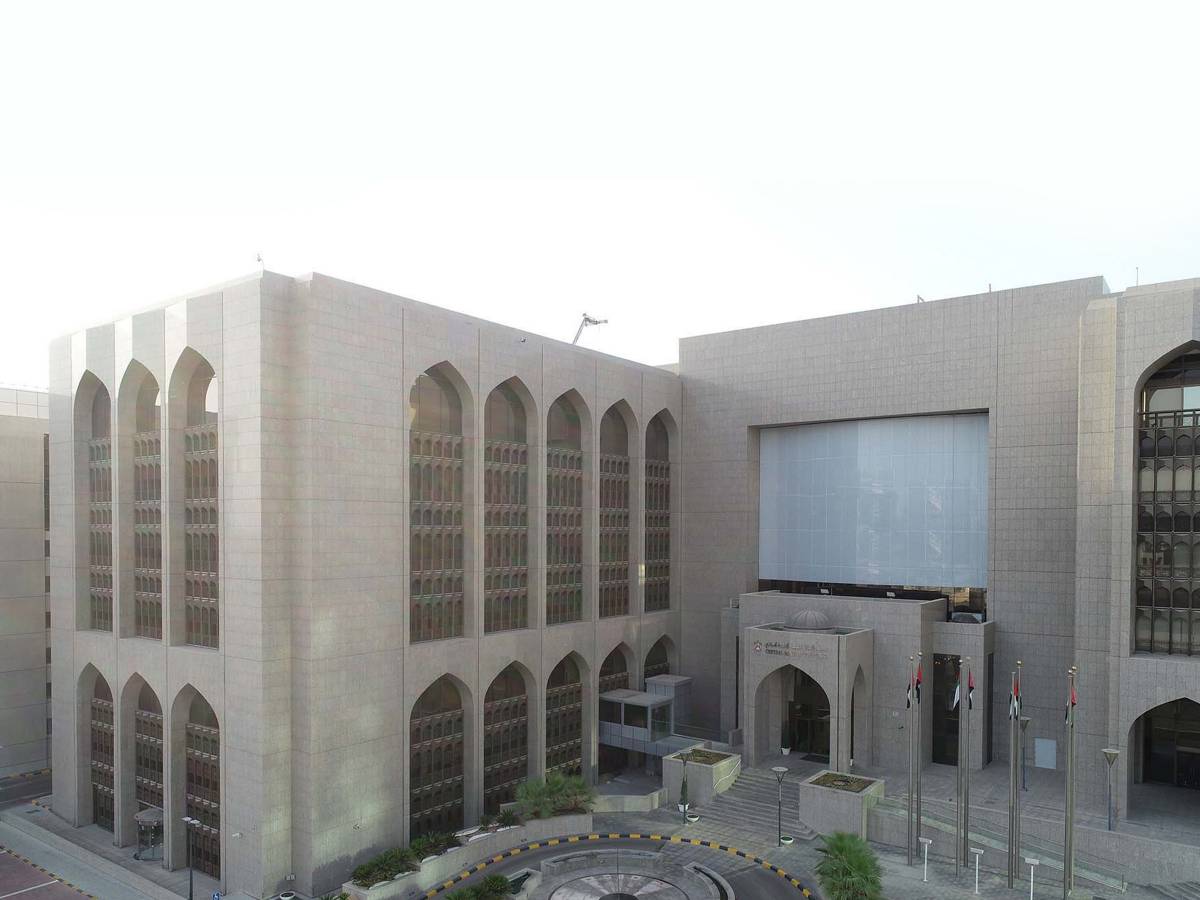It’s So Hot, They’re Growing Mangoes in Italy
Problems faced by farmers in the Mediterranean offer a preview into the challenges of feeding a warmer planet
EBRO DELTA, Spain—So much seawater is seeping into the paddy fields of this prized rice-growing region that Montserrat Sérvulo is considering replacing at least some of the crop with seaweed and clams.
“There is too much salt here,” said the 56-year-old farmer, standing on the edge of a field where she used to grow rice until last year. It is now filled with patchy grass and mud. “Last year wasn’t a good year, but at least we had something.”
Rising sea levels, dry spells and heat waves are disrupting food production in the Mediterranean, a region whose diet is regarded as a cultural treasure.
This year, prolonged drought and the scorching heat have hit agricultural production especially hard, wreaking havoc from the olive groves of Spain to the wheat fields of Algeria, reducing yields and pushing farmers to consider switching to hardier crops.
The recent heat wave has affected food production in other ways, too. Cows are producing less milk and bees are less willing to forage for pollen, with honey production down 70% compared with last year in Italy, according to Coldiretti, the country’s agricultural trade association.
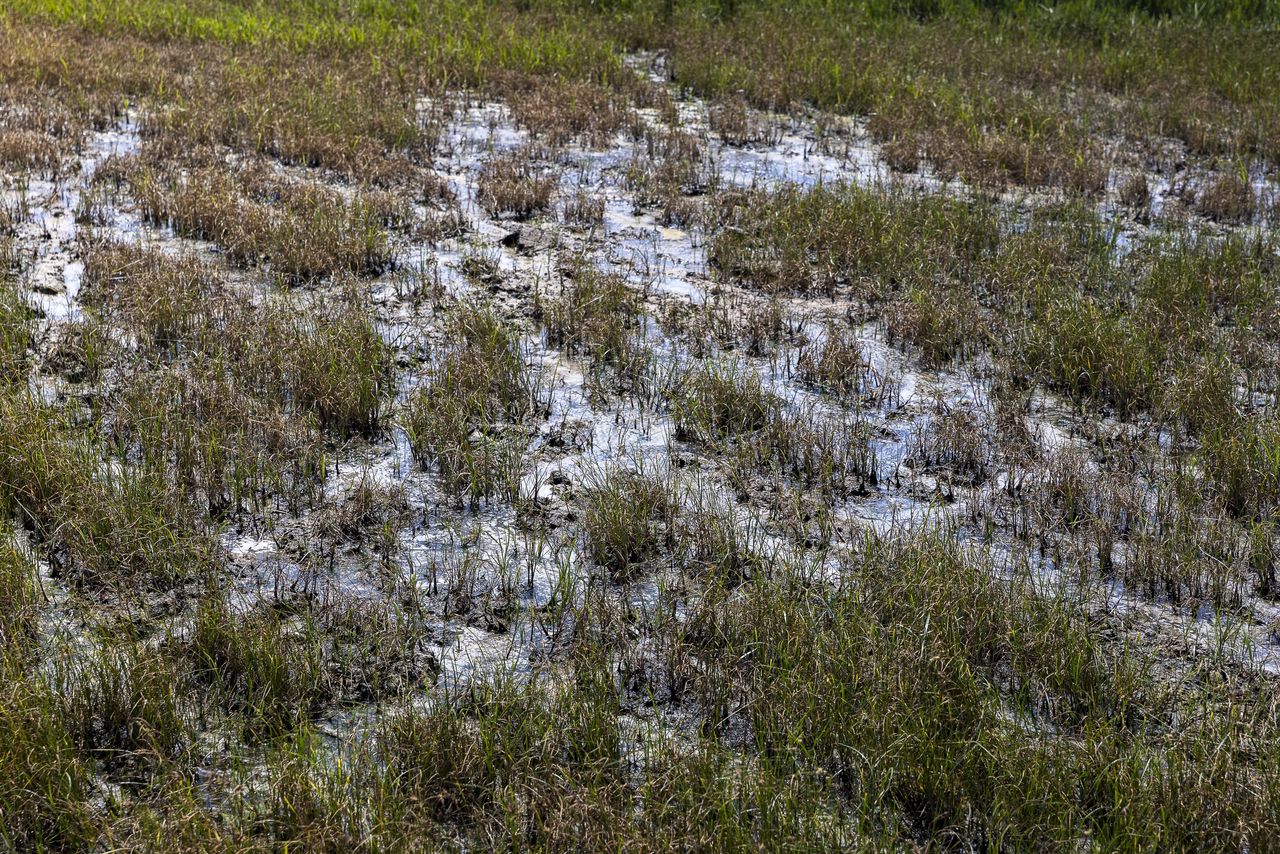
The climate is changing faster in the Mediterranean than in most places on Earth. Average temperatures here have already risen by around 1.5 degrees Celsius since the dawn of the industrial age, more than in all other regions except the Arctic. The problems farmers face in the Mediterranean offer a preview into the challenges of feeding a hotter planet.
The Ebro Delta, where paddy fields are spread over some 20,000 hectares of land, is so vulnerable because it is coming under the twin pressures of rising sea levels and drought.
Seawater from the Mediterranean is reaching deeper inland than it used to, and there isn’t enough freshwater from the Ebro River to flush out the excess salt from the fields. Because of a prolonged drought, the river was running so dry this year that, for the first time ever, the water supply to the delta was interrupted for long stretches of time.
The result is what some farmers here say is shaping up as the worst harvest they have ever seen. “If we manage to harvest 30% of what we did last year, it will be a lot,” says Sérvulo, who grows rice varieties used to make beer, breakfast cereal and the local specialty, paella.
Short-term solutions include processing more wastewater and covering up canals to limit how much water evaporates. Creating buffer zones to counter coastal erosion, such as through artificial beaches, could also help. But that won’t solve the problem everywhere.
“In some areas, rice production isn’t feasible anymore,” says Carles Ibañez Martí, head of climate change at Eurecat, a Barcelona-based research centre, who has studied the Ebro Delta. “You can fight it to some extent, but adaptation has its limit and at some point you can’t adapt any more, you have to change.”
How close this turning point is depends on how fast the sea levels and temperatures rise. In the rice-producing areas of northern Italy the drought has been so acute this year that some farmers have already planted soybeans, which require less water, instead.
Scientists aren’t optimistic. The latest report by the United Nations Intergovernmental Panel on Climate Change says the effects of global warming in the Mediterranean Sea’s coastal countries are likely to intensify in the coming decades.
Scientists at IRTA, the Institute of Agrifood Research and Technology of Spain’s Catalonia region, are helping farmers adapt to climate change, including by studying fish, seaweed and clam varieties best suited to replace paddy fields in the wetlands of the Ebro Delta.
“We are developing the technology so that when there is need, we can easily transfer it. We need to have data from two-three years of production cycles to show [farmers] it’s a credible, feasible opportunity. If not, they will abandon these areas,” said Enric Gisbert, who oversees the aquaculture division of IRTA. “What is happening here will probably happen in other deltas of the Mediterranean.”
The IRTA has also developed a new breed of apple designed to withstand higher temperatures. Similar studies are happening elsewhere. In Israel, researchers recently developed a new variety of drought-proof tomato.
The drought is stressing the poorer southern rim of the Mediterranean, where economies are being forced to import more wheat and other food staples. In Algeria and Morocco, fields of wheat, barley and other staple crops along the country’s Mediterranean coast have turned yellow well before harvest time, dried out by a persistent lack of rainfall.
“There is no water. We can’t work,” said Mohammed Bahout, 80, whose family grows wheat and barley west of Algiers, in a region between the coast and the Algerian highlands that is the country’s bread basket. He used to grow tomatoes and other vegetables, but the lack of water forced him to grow less water-intensive staple crops instead.
“If the good Lord doesn’t send water, we’re finished,” Bahout said.
Some are trying to make the most of the changing climate. In southern Italy, farmers are growing tropical fruit such as mangoes.
The cultivation of fruits such as bananas, mangoes and avocados has increased threefold in Italy over the past five years, and now covers some 1,200 hectares of farmland in Italy’s southernmost regions of Sicily, Calabria and Puglia, according to Coldiretti.
In northern Italy, the warmer weather has enabled the large-scale production of tomatoes and olive oil—crops that until 15 years ago were a preserve of the peninsula’s central and southern regions.
“An increase in one or 1.5 degrees Celsius means we can now cultivate things such as wheat in northern Italy. But if the rise in temperature is followed by heavy rains and hailstorms with hails as big as tennis balls, that becomes a lot more complicated,” said Lorenzo Bazzana, who is in charge of economic analysis at Coldiretti. “Adapting to climate change isn’t so simple.”
In the Languedoc wine country in southern France, vineyards have been stifled by months of drought and now a heat wave. Lack of rain leaves grapes small and shrivelled, while heat can raise a wine’s alcohol content and dull the characteristic flavours of a terroir.
Languedoc, which stretches along the Mediterranean near Spain, is one of the French regions most at risk from rising heat and longer periods of drought.
“We have rarely seen a period this long without rain,” said Christophe Bousquet, president of Languedoc’s wine growers group. “The grapes aren’t very pretty. There are a lot of them, but they are extremely small.”
Languedoc wine growers are searching for ways to protect their livelihood from the growing impacts of climate change. Bousquet, who owns a vineyard in La Clape, a territory on the Mediterranean, is allowing the grass to grow around his vines to hold more moisture in the soil when it does rain.
They are also looking into planting different grape varieties that can better withstand drought and heat. That is a risky change, Bousquet said, and new vines take years to grow—time he says they don’t have.
“The problem is, time is against us,” he said. “The evolution of the climate in the Mediterranean is happening much faster than anticipated.”
—José Bautista contributed to this article
 Copyright 2020, Dow Jones & Company, Inc. All Rights Reserved Worldwide. LEARN MORE
Copyright 2020, Dow Jones & Company, Inc. All Rights Reserved Worldwide. LEARN MORE
Marjan and RAK Hospitality Holding merged to form a unified entity under Marjan, combining real estate and hospitality expertise to advance RAK Vision 2030 and position the emirate as a regional lifestyle and investment hub.
Kyndryl’s 2025 Readiness Report reveals that Saudi businesses are seeing growing AI returns yet face challenges in modernizing infrastructure, upskilling talent, and strengthening cybersecurity, as the Kingdom advances its Vision 2030 digital transformation goals.
Huawei hosted its first General-purpose Computing Forum at GITEX 2025, uniting global experts to advance open-source, Arm-based, and sustainable computing ecosystems — reaffirming openness as the path to an intelligent world.
Saudi Arabia’s Ministry of Tourism has raised fines for unlicensed hospitality operations to SR250,000 in major cities and SR150,000 in second-tier areas, introducing bilingual service rules, stricter penalties, and a three-tier zoning system to ensure quality and protect the Kingdom’s tourism reputation.
The Ministry of Tourism has raised fines for operating hospitality facilities without a valid license to SR250,000 in major cities and key tourism destinations, up from the previous penalty amounting to SR50,000, according to the updated regulations that took effect this week.
The new penalties apply to first-tier cities, including Makkah, Madinah, Riyadh, Jeddah, and Alkhobar, as well as major giga-project destinations such as NEOM, The Red Sea, Diriyah, Amaala, and Qiddiya. Facilities operating without a valid license in these areas will also face permanent closure until the violation is corrected.
In second-tier cities — Taif, Dammam, Abha, Jazan, Tabuk, Hail, Buraidah, Khamis Mushait, Jubail, Najran, Yanbu, Hafar Al-Batin, Al-Baha, Al-Hofuf, and Sakaka — fines have been raised to SR150,000 from SR50,000.
The penalty for allowing others to use a tourism license has also been increased to SR60,000 for first-tier facilities and SR55,000 for second-tier facilities, compared with SR50,000 previously.
New penalties and language rules
Fines for obstructing tourism inspectors have doubled to SR10,000 for first-tier facilities and SR7,000 for second-tier facilities.
A new regulation mandates bilingual communication (Arabic and English) when responding to tourists via phone or email.
Facilities have seven days to rectify violations before a fine is issued — SR6,000 for five-star and luxury hotels, SR5,000 for four-star hotels, and SR2,000 for lower-rated serviced apartments.
Violations with penalties below SR10,000 can be issued immediately by authorized inspectors.
Graduated penalties and major offenses
The updated regulations classify offenses based on severity. Major violations include operating without a license, continuing activity after license suspension or expiry, actions harming public safety or the Kingdom’s tourism reputation, and obstructing inspectors.
Penalties are determined by facility size, location, and the severity of the violation. Minor violations will first receive a warning and a grace period to correct the issue before financial penalties are applied. However, repeated offenses within a year will result in doubled penalties and possible suspension or license cancellation after multiple violations.
Three tourism zones
The new framework divides Saudi Arabia into three zones:
Tier 1: Makkah, Madinah, Riyadh, Jeddah, Alkhobar, and giga-project destinations (NEOM, The Red Sea, Diriyah, Amaala, Qiddiya).
Tier 2: Taif, Dammam, Abha, Jazan, Tabuk, Hail, Buraidah, Khamis Mushait, Jubail, Najran, Yanbu, Hafar Al-Batin, Al-Baha, Al-Hofuf, and Sakaka.
Tier 3: All other cities and governorates.
The Ministry emphasized that the new measures aimed to ensure high-quality services, enhance compliance across the hospitality sector, and protect the Kingdom’s tourism reputation.
Chris Dixon, a partner who led the charge, says he has a ‘very long-term horizon’
Americans now think they need at least $1.25 million for retirement, a 20% increase from a year ago, according to a survey by Northwestern Mutual
Ankabut IT partners with Huawei, Rong Cloud, Neuxnet, and Talk Cloud to advance AI-driven education innovation in the UAE.
Ankabut Information Technology, the UAE’s advanced technology provider for the education and research community, announced the signing of a strategic multi-party Memorandum of Understanding (MOU) with global technology leaders Huawei Technologies UAE, RONG CLOUD H.K. LIMITED, Neuxnet (Singapore) PTE. LTD., and Talk Cloud (Beijing) Technology Co., Ltd.
The landmark agreement establishes a collaborative framework to co-design and integrate cutting-edge AI, cloud, and communication technologies tailored for the education sector. The consortium aims to foster innovation, enhance service portfolios, and deliver greater value to educational institutions and their stakeholders.
The collaboration will focus on several key areas:
- Joint Solution Development: Co-creating integrated, AI-driven, scenario-based education solutions.
- Technology Validation and Pilots: Testing and demonstrating these solutions within Ankabut’s network of partner institutions.
- Training and Capacity Building: Organizing workshops, seminars, and training programs to build capacity among educators and IT staff.
- Marketing and Ecosystem Promotion: Showcasing the partnership’s results and innovations at major industry events, exhibitions, and forums.
- Localization and Support: Adapting solutions to meet local requirements and providing ongoing, robust support.
“This partnership represents a significant leap forward for the education technology landscape,” said a spokesperson for Ankabut. “By uniting our regional expertise with the global technological prowess of Huawei, Rong Cloud, Neuxnet, and Talk Cloud, we are positioned to redefine learning experiences through powerful, practical AI applications.”
The alliance brings together complementary strengths from each partner: Ankabut’s deep roots in the UAE’s education sector, Huawei’s leadership in ICT infrastructure, Rong Cloud’s and Talk Cloud’s expertise in cloud communication platforms, and Neuxnet’s advanced networking and AI capabilities.
“This MOU underscores our shared commitment to driving digital transformation in education,” added a representative from Huawei Technologies UAE. “We are excited to collaborate on developing localized solutions that address real-world challenges faced by educators and students.”
The partners will immediately commence strategic discussions to develop a detailed action plan, with a focus on rapid prototyping and pilot deployments.
Chris Dixon, a partner who led the charge, says he has a ‘very long-term horizon’
Interior designer Thomas Hamel on where it goes wrong in so many homes.
Abu Dhabi will host the Games of the Future 2025 from 18–23 December at ADNEC, bringing together athletes, gamers, and clubs from around the world to compete in phygital sports that merge physical and digital gameplay — reinforcing the UAE’s role as a global hub for innovation, youth, and community.
Abu Dhabi, UAE will host the Games of the Future 2025 (GOTF 2025), the groundbreaking global event where phygital sports bring together elite clubs, athletes, and gamers to compete in cutting-edge disciplines that blend real-world athleticism with advanced gaming technology.
Taking place from 18-23 December 2025 at ADNEC Centre Abu Dhabi, the tournament is a natural extension of the ‘We the UAE 2031’ vision and the nation’s designation of 2025 as the Year of Community, reinforcing the UAE’s role as a global hub for sport, innovation, youth empowerment, and cultural exchange.
His Excellency Dr. Ahmad Belhoul Al Falasi, UAE Minister of Sports, affirmed that Abu Dhabi’s hosting of the Games of the Future 2025 is a qualitative new step in the country’s journey to consolidate its position as a global hub for innovation and the evolving sports industry. He emphasized that the Games reflects the We the UAE 2031 vision by empowering youth, advancing the digital economy and strengthening the global standing of Emirati sports.
His Excellency Dr. Al Falasi said: “The Games of the Future 2025 merges athletic performance with technology, inspiring youth, driving sports innovation, fostering teamwork among youth and supporting a sustainable economy based on innovation and knowledge. At the Ministry of Sports, we are committed to ensuring the success of the Games and reinforcing the UAE’s status as a premier host of global sports events.”
The We the UAE 2031 vision outlines ambitious goals around economic diversification, digital transformation, and youth empowerment. The Games of the Future 2025 directly supports these priorities by accelerating the digital economy through the introduction of new technology platforms and esports-driven industries that position the UAE as a destination for innovation and investment.
The event also empowers youth by providing opportunities for athletes and gamers to showcase their skills on an international stage, while inspiring the next generation to embrace creativity, teamwork, and innovation. By hosting large-scale international phygital sports tournament, the UAE further demonstrates its leadership as a convenor of transformative global events.
At the same time, GOTF 2025 reflects the spirit of the UAE’s Year of Community, which emphasizes shared values, inclusivity, and togetherness. The event will bring together athletes, fans, and clubs from diverse countries and cultures, creating a platform that unites people across backgrounds. The phygital disciplines themselves promote collaboration, strategy, and adaptability, embodying the spirit of teamwork and mutual respect. Beyond the competition, fan zones, interactive activations, and cultural showcases will celebrate community spirit, enhancing the sense of belonging for residents and visitors alike.
In the lead-up to GOTF 2025, a dedicated community engagement roadshow will take place across key locations in Abu Dhabi and Dubai, offering residents and fans an opportunity to explore the spirit of phygital sport through interactive activations and curated experiences. Stay tuned for more details on the roadshow and where to find it.
The Games of the Future 2025
The tournament will feature 11 disciplines including Phygital Football, Phygital Basketball, MOBA PC and Mobile, Battle Royale, and more, combining the drama of physical competition with the creativity of digital gaming.
A wide range of international and regional clubs have already confirmed their participation in the Games of the Future 2025, including PBC Astana, Thang Long Warriors, Intercosmics, CD Holcattes and Great Team Brazil. Phygital Football teams México Quetzales – Armadillos FC, CM Jardim, Greni Smith, Z10, FC WHITEBIRD and La Crema will also return to Abu for the final showdown, following their success at the Phygital Contenders: Abu Dhabi – Football tournament earlier this year.
The event is also supported by World Phygital Community member organizations, such as Phygital Brazil, the Serbian Association of Electronic Sports, and the Belarusian Federation of Phygital Sports, reflecting the growing global network behind the phygital movement.
Among the star athletes set to compete are Rodrigo Ulibarri and Aldair Giorgana (Mexico Quetzales – Armadillos FC), as well as Matheus Dedo (CM Jardim) — each known for their standout performances across both traditional and digital sports. Their participation underscores the growing excitement among international athletes embracing the phygital format.
They will be joined by a growing roster of clubs from across Africa, Asia, Europe, and the Americas, including groups competing in Phygital Basketball, Phygital Football, Phygital Dancing, and Phygital Shooter disciplines, underscoring the truly global nature and universal appeal of the tournament.
The competition is organised by ASPIRE, the Local Delivery Authority for the Games of the Future Abu Dhabi 2025, in collaboration with Ethara, the Event Delivery Partner, and Phygital International, the Global Rights Holder. The event is supported by key stakeholders, including the Host City Entity, Abu Dhabi Sports Council, and the Official Partner, Ministry of Sports.
Stephane Timpano, CEO of ASPIRE, said: “The Games of the Future is a reflection of the UAE’s bold vision to create opportunities for youth, innovation, and community. By bringing together athletes, gamers, fans, and partners, to introduce sports like you have never seen before, we’re bringing technology and sport to life through Phygital Sports”
ADNEC Centre Abu Dhabi will play host for the Games of the Future from 18-23 December. As a dynamic space purpose-built for innovation and scale, it will be transformed into a futuristic field suitable for this ground-breaking global event – offering the ideal environment to deliver a world-class phygital sports showcase. Its strategic infrastructure and operational excellence continue to position Abu Dhabi and the UAE as a leading destination for international events at the intersection of technology, sport, and culture.
Chris Dixon, a partner who led the charge, says he has a ‘very long-term horizon’
Following the devastation of recent flooding, experts are urging government intervention to drive the cessation of building in areas at risk.
Marjan and RAK Hospitality Holding merged to form a unified entity under Marjan, combining real estate and hospitality expertise to advance RAK Vision 2030 and position the emirate as a regional lifestyle and investment hub.
Marjan, the master developer of freehold properties in Ras Al Khaimah, and RAK Hospitality Holding, the government-owned investment and development arm in the Emirate, have announced a landmark strategic merger to create a unified entity operating under Marjan.
This merger combines world-class hospitality expertise with visionary land development strategies to form a dynamic future-ready organization. Marjan will integrate real estate development, hospitality operations, and lifestyle experiences under one umbrella, positioning itself as one of the largest real estate developers in the UAE and the leading master developer in the Northern Emirates.
Announcing the merger, His Highness Sheikh Ahmed bin Saud bin Saqr Al Qasimi, Chairman of Marjan, said: “RAK Vision 2030 has set the Emirate’s ambition to be a pioneer in the region for livability and a place where opportunities thrive. Anchored in this vision, the merger will create high-value jobs for Emiratis, develop national capabilities, and reinforce our position as a beacon of opportunity and innovation. Together, we are positioned to build thriving communities that bring the Emirate’s bold vision for sustainable prosperity to life.”
Marjan’s future developments including Al Marjan Island, RAK Central, Marjan Beach, and the Jebel Jais masterplan will elevate the quality of life for residents, enrich travel and leisure experiences, and attract diverse investment opportunities. The merger supports RAK Vision 2030’s goal of welcoming 3.5 million annual visitors and achieving nearly 20,000 hotel keys.
Abdulla Al Abdouli, Group CEO, said: “Marjan will position Ras Al Khaimah as the global lifestyle and investment hub of the future.”
This merger empowers Marjan to propel the Emirate into its next chapter of growth, fostering distinctive lifestyle offerings, and attracting world-class talent and investments.
Chris Dixon, a partner who led the charge, says he has a ‘very long-term horizon’
Kyndryl’s 2025 Readiness Report reveals that Saudi businesses are seeing growing AI returns yet face challenges in modernizing infrastructure, upskilling talent, and strengthening cybersecurity, as the Kingdom advances its Vision 2030 digital transformation goals.
Kyndryl, a leading provider of mission-critical enterprise services, today released its second annual Readiness Report, drawing on responses from 3,700 senior leaders across 21 countries. The data reveals a moment of both momentum and reflection — as businesses in Saudi Arabia report growing returns from AI investments while facing mounting pressure to modernize infrastructure, scale innovation efforts, reskill workforces, and manage risk in an increasingly fragmented regulatory landscape.
“The Readiness Report confirms what we see in Saudi Arabia every day. Leaders are achieving returns from AI, yet many are working to modernize legacy systems, build new skills, and align with an evolving policy environment,” said Pieter Bil, Senior Vice President and Managing Director of Kyndryl in the Middle East and Africa. “Vision 2030 raises the bar, asking all of us to build secure, sovereign ready digital infrastructure and world class human capability. The priority now is to move from early stage adoption to scaled innovation, strengthen cyber resilience, and develop Saudi talent so AI becomes a durable growth engine for the national economy.”
Last year’s report revealed a critical gap between perception and preparedness: while the majority of business leaders in the Middle East, including Saudi Arabia, believed their IT infrastructure was best-in-class, fewer felt it was ready for future disruption. While there has been momentum – that tension remains. This year:
- ROI pressure rising, but AI stuck in experimentation phase: 63% of Saudi organizations report feeling more pressure to prove ROI on AI investments compared to last year. However, 57% say their innovation often stalls after the proof-of-concept, and 53% agree foundational issues in their technology stack.
- Confidence continues to outweigh capability: While Saudi organizations are eager to innovate, foundational challenges persist. 94% say they struggle to keep up with the pace of technological advancements, 30% cite the complexity of their technology environments as a barrier to scaling tech investments, and 26% struggle to align business and technology teams.
- AI driving workforce transformation, but skills gaps remain: 91% in Saudi Arabia say AI will “completely” transform jobs at their organizations within 12 months. Yet, 31% are concerned about how to upskill and reskill employees whose jobs are replaced by AI, 35% worry about the lack of core cognitive skills and 35% cite gaps in technical skills needed to harness AI’s potential.
- Cyber resilience top of mind: With 76% of Saudi organizations having experienced a cyber-related outage in the past year, cybersecurity has become a top priority. Yet, only 39% are implementing robust cybersecurity measures, and 33% are upgrading their IT infrastructure to mitigate business risks and strengthen resilience.
- Policy and compliance shaping infrastructure decisions: As Saudi organizations scale their technology investments, 29% cite regulatory or compliance concerns as a barrier, underscoring the influence of policy on infrastructure strategy and innovation readiness.
Cloud is under pressure as geopolitical and regulatory disruption drive change
Many Saudi organizations are revisiting their cloud infrastructure, prompted by new regulations and growing concerns about data sovereignty. 67% of Saudi leaders express concerns about the geopolitical risks associated with storing and managing data in global cloud environments, and 70% have adjusted their cloud strategies in response – by investing in data repatriation (50%), reassessing vendors (28%), and shifting toward private cloud models (31%).
Chris Dixon, a partner who led the charge, says he has a ‘very long-term horizon’
Huawei hosted its first General-purpose Computing Forum at GITEX 2025, uniting global experts to advance open-source, Arm-based, and sustainable computing ecosystems — reaffirming openness as the path to an intelligent world.
Huawei successfully held its first General-purpose Computing Forum at GITEX 2025. Global analysts, open-source representatives, experts, and industry leaders gathered at the event to discuss computing trends, drivers of ecosystem success, and best practices across key sectors. Discussions converged on one clear future: openness is the essential path to an intelligent world.
“As a pioneer on this open path, Huawei is deeply committed. We adhere to the principle of open hardware, open-source software, partner empowerment, and joint ecosystem development,” said Michael Chang, President of Huawei Computing Marketing & Solution Sales Dept.
Michael also highlighted how open ecosystems like Arm, spanning hardware, software, and OS, deliver broader choices, lower barriers, and greater innovation. To date, Huawei’s computing ecosystem has over 6 million developers, more than 8,000 partners, and over 22,000 certified solutions.
The Kunpeng hardware powers core applications in finance, energy, the public sector, carriers, and manufacturing. “We aim to co-build a sustainable global computing ecosystem with industry partners, providing an open and reliable computing alternative for the Middle East and the world,” Michael added.
Building on this vision, Hu Zhengce, Vice President, Huawei Middle East & Central Asia ICT Marketing & Solution Sales Dept., detailed the progress: “On the hardware front, Kunpeng continues to evolve with more cores and higher performance. In terms of software, Kunpeng has maintained a consistent commitment to open source over the past six years. We have progressively open-sourced the openUBMC firmware management software, openEuler OS, openGauss database, openFuyao computing cluster software, as well as BiSheng JDK and compilers.
This year, Kunpeng continues to open-source its solutions, including BoostKit for application enablement and the KUPL high-performance computing framework. These efforts empower customers and developers with seamless integration and deployment, delivering simpler processes, smoother upgrades, and easier maintenance.”
The forum attracted enthusiastic participants from the Middle East, Central Asia, Africa, and beyond, including representatives from industry sectors such as carriers, finance, public service, energy, and manufacturing, as well as academia.
Speakers noted the computing industry is undergoing its most significant infrastructure transformation in 20 years, driven by three key trends: open source becoming mainstream, heterogeneous computing emerging as the new benchmark, and the global Arm ecosystem becoming mature.
Kunpeng, as a core Arm ecosystem builder, reached 25% market share in China by the end of 2024. Now, Kunpeng is ready to accelerate digital intelligence with partners across the Middle East and Central Asia, ushering in a new computing era.
Chris Dixon, a partner who led the charge, says he has a ‘very long-term horizon’
IDEMIA Public Security signed a strategic agreement with SAMI Advanced Electronics at GITEX Global 2025 to develop biometric, transport, and smart mobility solutions in Saudi Arabia, advancing Vision 2030 and enabling secure, seamless travel experiences.
IDEMIA Public Security, the leading provider of secure and trusted biometric-based solutions, has signed a strategic cooperation agreement with SAMI Advanced Electronics, a regional leader in the electronics industry in Saudi Arabia, to drive transformative innovation in travel, transportation, and smart mobility across the Kingdom.
Formalized and signed at GITEX Global 2025, the world’s largest and most influential tech event, the agreement underscores IDEMIA Public Security’s commitment to shaping the future of mobility through cutting-edge technology and local collaboration. This milestone marks the start of a strategic collaboration focused on advancing digital transformation, enhancing operational efficiency, and delivering secure, frictionless travel experiences in line with Saudi Arabia’s Vision 2030.
Under the agreement, IDEMIA Public Security and SAMI Advanced Electronics will jointly develop and deploy advanced biometric, transport, and smart city solutions, leveraging IDEMIA Public Security’s global expertise and SAMI’s regional capabilities to accelerate innovation and build technological capacity.
“We are proud to deepen our mission of making the world safer through trusted technology,” said Tim Ferris, Global Head, Travel & Transport, IDEMIA Public Security. “This partnership with SAMI Advanced Electronics brings us one step closer to realizing a future of seamless and secure mobility in Saudi Arabia. Together, we’re not only supporting Vision 2030 – we’re actively shaping the future of secure, seamless mobility for all who live, work, and travel in the Kingdom.”
IDEMIA Public Security’s biometric travel solutions are trusted worldwide to streamline border operations, enhance decision-making, and deliver personalized digital passenger journeys. Through their agreement with SAMI Advanced Electronics, IDEMIA Public Security reinforces its commitment to local innovation, knowledge transfer, and sustainable development in the region.
Chris Dixon, a partner who led the charge, says he has a ‘very long-term horizon’
Mubadala Capital is reportedly exploring a deal to acquire Clear Channel Outdoor, marking a potential take-private move for the Texas-based billboard operator with $6.4 billion in debt, as deal activity in outdoor advertising intensifies.
Mubadala Capital, a unit of Abu Dhabi’s sovereign wealth fund, is working on a potential deal to acquire billboard operator Clear Channel Outdoor citing people familiar with the matter.
Activist investor Anson Funds Management had pushed for the sale of Clear Channel last month, the report said, and comes at a time when dealmaking in outdoor advertising has been lately heating up.
The San Antonio, Texas-based company has about $6.4 billion in debt, the report added.
While the asset management firm has a sprawling global portfolio, it is not a major player in US media investments.
The potential take-private move is the latest from Mubadala Capital, which earlier this year had sold a minority stake in its company to investment firm TWG Global led by Guggenheim Partners founder Mark Walter and financier Thomas Tull.
Chris Dixon, a partner who led the charge, says he has a ‘very long-term horizon’
Dubai Land Department partners with Google Cloud to launch the AI-powered “Investor Assistant”, turning data into smart insights and transforming real estate investment in Dubai through AI-driven, sustainable innovation.
In a move that opens new horizons for smart real estate investment and exceptional digital services, Dubai Land Department (DLD) announced a strategic tie-up with Google Cloud that transforms artificial intelligence from a supportive tool into a driving force for investment decision-making.
Through the integration of DLD’s data with Google Cloud’s Data & AI capabilities, the partnership aims to simplify the investor journey from exploration to execution – while reinforcing Dubai’s position as a global laboratory for sustainable and transparent investment innovation.
Building on ongoing efforts to achieve the objectives of the Dubai Economic Agenda D33 and the Dubai Real Estate Strategy 2033, the collaboration unveiled at GITEX Global 2025 introduces DLD Investor AI Assistant, powered by Google Gemini.
This innovative service elevates the investor experience by harnessing Google Cloud’s integrated ecosystem of artificial intelligence, cloud solutions, mapping technologies and podcasts, said the statement.
This partnership represents a milestone that reflects Dubai’s vision of harnessing artificial intelligence and data to lead the transformation of the real estate sector toward greater innovation and sustainability.
Moreover, the new digital assistant integrates these advanced capabilities with a human-centered design to create transformative experiences that redefine how individuals interact with institutions.
The first pillar of the collaboration is the DLD Investor AI Assistant, powered by Google Gemini, launched under the theme ‘Smart Dialogue, Smarter investments.
This service introduces a new dimension of support for local and international investors through an advanced knowledge interface that transforms vast volumes of real estate data into precise, neutral, and reliable analytical insights, empowering investors to make well-informed decisions with confidence.
Showcased at Gitex Global 2025 and will be made available through the DLDs’ website, the service offers comprehensive information about Dubai’s investment environment and key processes.
During this event, Dubai Land Department also introduced an innovative form of interaction where users can convert documents on real-estate investment topics into AI-generated interactive podcasts, powered by Google Notebook, allowing users to join podcasts and engage in rich human-like conversations.
DLD continues to enhance the service by integrating additional innovative features to further strengthen the capabilities of the AI investment assistant.
These initiatives mark a new chapter in the management of real estate investments and services in Dubai. By combining the institutional data strength of the DLD with Google Cloud’s expertise in artificial intelligence, Dubai reinforces its leading position in leveraging technology to enhance the efficiency of the real estate market and boost investor confidence.
Through this collaboration, the Dubai Land Department reaffirms its vision of achieving global leadership in real estate investment, a vision now realized through an innovative digital approach that transforms artificial intelligence into a driver of growth and data into a platform for opportunity, ensuring Dubai remains the world’s foremost destination for smart and sustainable real estate investment.
Chris Dixon, a partner who led the charge, says he has a ‘very long-term horizon’
Day 4 of GITEX GLOBAL 2025 spotlighted cybersecurity, AI, and digital resilience, uniting global leaders to secure an AI-powered future — as Dubai cements its status as a hub for innovation and digital collaboration.
Day 4 of GITEX GLOBAL 2025 set another benchmark for digital collaboration as policymakers, cybersecurity leaders, and innovators convened to address the most pressing question of the intelligent age – how to secure a world powered by AI and data. While cybersecurity and resilience dominated the day’s discourse, the show floor remained a convergence of cutting-edge innovation across AI, cloud, data centres, robotics, and quantum computing, underlining GITEX’s unrivalled breadth and impact.
As digital transformation accelerates, speakers called for a unified global response that firmly plants security, ethics, and trust at the core of AI-driven progress. The 45th edition of GITEX GLOBAL continues driving business transformation and investments until tomorrow, 17 October 2025, converging more than 6,800 exhibitors, 2,000 startups, 1,200 investors, and delegations from over 180 countries at Dubai World Trade Centre.
Cyber Resilience: Building Trust in the Age of Intelligence
Opening the day’s program, H.E. Omar Sultan Al Olama, UAE Minister of State for Artificial Intelligence, Digital Economy and Remote Work Applications, highlighted the significance of the gathering: “As a platform, nothing really represents the UAE’s vision when it comes to technology, and the UAE’s position as a convener of the world than GITEX.” His Excellency then urged governments and enterprises to prioritize AI capacity-building and risk management as key national imperatives, sharing, “We’re all for proactive regulation, yet proactive regulation needs to be well-informed. We need to have agile policymaking to try to deal with the impact of AI as it evolves and manage it effectively every step of the way.”
In a defining address titled Cyber Resilience 2030: People, Policy & AI at the Core of National Security, H.E. Dr. Mohamed Al Kuwaiti, Head of Cybersecurity for the UAE Government, outlined how the nation is advancing an integrated framework that combines governance, AI threat detection, and citizen awareness. His Excellency stressed, “The main message is to have a strong Cyber Culture across nations and society. Our people, is and will always be our first line of defense.” At the main stage, the UAE Cyber Security Council also launched the UAE’s Cybersecurity Vision 2025 report. At the unveiling, His Excellency shared, “Resiliency is very important for us in the UAE, and this is reflected in the report. The focus is on capacity-building, technology exchange, partnerships, and shared innovation.”
Dr. Neal Jetton, Director of Cybercrime at INTERPOL, offered insights into the global authority’s coordinated strategy against transnational cybercrime. Dr. Jetton commented, “Criminals are using AI to increase their efficiency scope and effectiveness of their operations. At INTERPOL, we bring countries together, with relevant private sector representatives, to work together on the steps needed to be effective against cybercrimes.”
Energy storage tech entrepreneur, Taavi Madiberk, CEO and Co-Founder of Skeleton Technologies, raised thought-provoking questions on the economics of AI. He said: “It’s very important to bring down the cost of AI. If for the same money, you can have 40% more computing power, you can enable new applications in cancer research, climate research, new battery technologies.”
Shedding light on cyber strategies from global governments, Her Excellency Liisa-Ly Pakosta, Estonia’s Minister of Justice and Digital Affairs, inspired audiences on how digital nations are fortifying themselves against AI-driven threats through collaborative frameworks and strong governance. H.E. shared: “Every cyberattack has an overspill; that’s why international cooperation between researchers, cyber specialists, companies, and government is truly essential.”
Exhibitors Showcase the Future of Secure Digital Transformation
Across the exhibition halls, the momentum continued as cybersecurity leaders demonstrated how innovation and protection now go hand in hand.
Huawei commanded attention with a comprehensive showcase of 80+ solutions themed under ‘All Intelligence,’ which unites five transformative pillars shaping the intelligent economy – Accelerate Industrial Intelligence, Partner Park, Huawei Cloud, Intelligent Data Center, and Intelligent Campus. The company unveiled end-to-end industry solutions designed to accelerate national digital transformation for sovereign and hybrid deployments. With a view to enhancing knowledge exchange, Huawei also unveiled the ICT Skills Development Insights Report 2025 in partnership with UNESCO IITE at GITEX GLOBAL.
Demonstrations of AI-driven network automation, energy-efficient digital power systems, and advanced cybersecurity frameworks reinforced Huawei’s leadership in building the digital foundations of smarter cities, resilient enterprises, and connected societies.
Critical infrastructure cybersecurity leader, OPSWAT presented its MetaDefender Optical Diode ensuring highly secure data transfer between OT/IT and the next-generation MetaDefender Kiosks, including Stand, Tower & Kiosks that offer advanced protection for critical assets.
Fortinet, a global leader in integrated AI-powered security solutions across networks, endpoints, and clouds, showcased its FortiGuard Incident Response & Readiness – a set of services that provide expert-led, intelligence-driven, and fully tailored support combining readiness, response, and continuous improvement under a predictable subscription model.
Crowdstrike presented Falcon platform, their flagship security solution. The cloud-native innovation has yielded a 98% reduction in critical vulnerabilities covering endpoint, cloud workloads, identity, data, and applications.
MoUs Strengthen Dubai’s Cyber Infrastructure
On the MoU Stage, Dubai Municipality and Fortinet International signed a strategic agreement to advance the emirate’s AI-enabled cybersecurity infrastructure, supporting the development of secure digital systems and public sector transformation.
Day 5 Preview: Closing a Landmark 45th Edition
GITEX GLOBAL 2025 enters its final day tomorrow, capping a week of shaping the future of AI, cybersecurity, cloud, quantum, data centers, mobility, biotech, digital health, and future energy.
With record crowds, groundbreaking product launches, and milestone business partnerships, GITEX GLOBAL is ready to conclude on a high note, before its milestone move to Dubai Exhibition Centre, Expo City Dubai in 2026, running from 7-11 December.
Chris Dixon, a partner who led the charge, says he has a ‘very long-term horizon’
AWS and e& launch the “AI Nation – Afaaq” program to train 30,000 people in AI and machine learning, supporting the UAE’s vision for a knowledge-driven digital economy.
Amazon Web Services (AWS) and global technology group e& are bringing to life their digital transformation vision with the launch of the nationwide initiative “AI Nation – Afaaq” program to train 30,000 individuals in machine learning (ML) and artificial intelligence (AI) technologies. The program, announced at GITEX Global in Dubai, is part of the strategic US$1 billion alliance between e& and AWS, which was announced in 2024.
e&, which serves more than 198 million subscribers in 38 countries, will work with AWS, the world’s most comprehensive cloud provider, to deliver this training through e& Academy, marking a significant milestone in the UAE’s digital leadership and talent development journey.
This initiative aligns with growing regional workforce challenges and requirements highlighted in IDC’s 2024 report. According to the study, an estimated 88% of United Arab Emirates (UAE) and Kingdom of Saudi Arabia (KSA) organizations recognize AI’s business impact. However, although 78% of UAE organizations prioritize AI investment, nearly half (46%) identify the shortage of AI skills and expertise as a critical barrier to large-scale implementation.
By addressing the AI skills gap head-on, the program reinforces e& and AWS’s commitment to directly support the UAE’s ambitious national goals including the UAE Centennial 2071 plan, which aims to build a future-focused government and a diversified, knowledge-based economy.
The program will be delivered through the e& Academy, ensuring trainees across the UAE have access to world-class training and localized support. AWS will provide 30,000 sponsored vouchers for industry-recognized certifications including 25,000 for the foundational AWS Certified AI Practitioner and 5,000 for the more advanced AWS Certified Machine Learning Engineer – Associate. Learners will also have free access to digital, self-paced training content on AWS Skill Builder, one of the most comprehensive online learning centers for cloud skills.
To further support learners on their journey, the program will be complemented by live, interactive ‘Cloud Coach’ sessions for exam readiness, empowering them with in-demand technical skills that contribute to the UAE’s digital-first ambitions.
Harrison Lung, Group Chief Strategy Officer, e&, said: “As AWS’s strategic partner, e& is proud to enable this nationwide digital skills program through our e& Academy. This collaboration reflects our shared commitment to developing the next generation of talents that will drive the UAE’s innovation and leadership in the global digital economy. By combining AWS’s global training excellence with our local expertise and established presence, we are ensuring that learners across the country have access to the tools and support needed to succeed in the era of cloud and AI. This is about building the nation’s talent base at scale so employers can hire with confidence and people can step into AI-enabled roles across every sector.”
Madhavi Reddy, Managing Director, Middle East North Africa and Turkey, AWS, said: “This initiative represents AWS’s deep commitment to making world-class digital skills training accessible across the UAE. By providing 30,000 learners with industry-recognized certifications in cloud and AI, we are helping to build the robust talent base required for the nation’s digital transformation journey.”
“Our collaboration with e& Academy as an AWS Training Partner is crucial, enabling us to combine AWS’s global training expertise with strong local delivery. Together, we are empowering a new generation of builders to turn knowledge into tangible impact for businesses and communities alike.”
By developing a large-scale pipeline of talent equipped with advanced skills in cloud computing and AI, AWS and e& are investing in people that will drive innovation, attract investment, and secure the UAE’s position as a leading global technology powerhouse for generations to come.
Chris Dixon, a partner who led the charge, says he has a ‘very long-term horizon’
Genesys’ latest report shows 64% of consumers expect AI to enhance customer experience within three years. In MEA, CX leaders plan to spend 43% of their budgets on AI, as 51% of consumers would switch brands after two poor interactions—highlighting the need for faster, more personalized, and empathetic service.
Genesys, a global cloud leader in AI-Powered Experience Orchestration, has released its latest research report, “The State of Customer Experience: Middle East and Africa”, revealing critical insights into consumer expectations and the evolving priorities of customer experience (CX) leaders in the region. Notably, nearly two-thirds (64%) of consumers surveyed globally believe AI will improve the quality and speed of customer experience over the next two to three years. The good news is that organizations are focusing on the integration of AI into their CX strategies to close the gaps between the experiences they’re delivering today, and the services consumers want.
For today’s CX leaders, the potential for AI to transform how their organizations engage with customers is front and center, demonstrated by the 42% of global respondents who cited increasing the use of AI to improve experiences as a top priority in the survey. In MEA, AI has become so important for CX leaders, they’re planning to invest a whopping 43% of their CX-related spend toward the technology in the coming year. More than half (51%) of CX leaders surveyed in MEA are planning to invest over the next two years in AI solutions that can help improve the employee experience.
“Consumers across the Middle East and Africa (MEA) are increasingly optimistic about the role of AI in delivering faster, more personalized and efficient service experiences,” said Sebastian Ballerini, vice president of EMEA Growth Markets at Genesys. “As organizations across the region accelerate their digital transformation efforts, it’s critical they maintain a human touch. Customers value speed, but also empathy. This report highlights how AI can help organizations not just streamline operations but build deeper trust and stronger relationships through more intelligent, connected experiences.”
Failing to deliver on what consumers believe to be a good experience can have significant impact on an organization’s bottom line: More than half (51%) of consumers surveyed in MEA said they will abandon a favorite brand after experiencing as few as two poor interactions. In fact, 34% of those surveyed admitted that they stopped doing business with a company in the last year after a bad experience. With 46% of CX leaders surveyed in MEA citing keeping pace with consumers’ rising expectations as their greatest challenge, harnessing AI to improve customer experiences is a business imperative.
Key Insights from the Middle East & Africa Report:
Personalization and Channel Choice Define Modern CX
- 61% percent of consumers value being connected directly to the right person who can solve their problem, and 55% prefer to engage via their channel of choice.
- 98% of MEA consumers also said it’s important to move between channels without having to repeat information.
Consumers Demand Speed, Empathy and Seamless Interactions
- 58% of consumers in MEA say quick response is a top attribute they value in a customer service interaction, compared with 48% globally .
- More than two-thirds (69%) of consumers value brands that listen and understand their needs, and over half (58%) appreciate companies that recognize their account history and activity.
Confidence High Among CX Leaders
- CX leaders in MEA report higher confidence than their global counterparts in delivering satisfaction and personalization. In fact, 57% say their organizations are “extremely effective” at delivering customer satisfaction, while 52% believe they’re delivering highly personalized experiences, versus 46% and 42% globally, respectively.
- 52% of leaders in the region also have a stronger focus on customer retention ahead of the 38% who cited this globally.
Methodology: Genesys worked with an independent research firm to survey 5,232 consumers and 1,181 CX decision-makers in more than 16 countries. Included among the respondents were 1,067 consumers and 180 CX decision-makers from the Middle East and Africa. The survey was conducted in September and October of 2024. Among the business respondents globally, the industries represented were airlines, automotive, banking, government, healthcare, insurance, manufacturing, media and entertainment, professional services, retail, travel and hospitality, technology, telecommunications, and utilities.
Chris Dixon, a partner who led the charge, says he has a ‘very long-term horizon’
Alexandre de Betak and his wife are focusing on their most personal project yet.
Parmigiani Fleurier unveils the Tonda PF Automatic Deep Ruby, a 36 mm blend of steel and rose gold with a guilloché ruby dial and baguette diamond indices. Powered by the PF770 movement, it reflects the Maison’s signature balance of elegance, precision, and modern sophistication.
Parmigiani Fleurier proudly introduces the latest interpretation of its iconic Tonda PF Automatic, winner of the prestigious Grand Prix d’Horlogerie de Genève (GPHG) in 2022. This 36 mm version, crafted in stainless steel and 18ct rose gold, dazzles with its Deep Ruby dial and baguette-cut diamond indices. It perfectly embodies contemporary elegance and refined character, all while retaining a sophisticated allure capable of captivating the most discerning individuals.
“At Parmigiani Fleurier, color is never loud or obvious; it embodies a subtle sophistication born from intricate blends and nuanced tones. Each shade gracefully responds to its surroundings, delicately capturing light to reveal the full depth of its palette. In the case of Deep Ruby, this translates into a refined harmony, fluidly shifting from soft plum nuances to deeper burgundy hues.”
Guido Terreni, CEO Parmigiani Fleurier
CONTEMPORARY CHARM IN DEEP RUBY
The dial’s intense Deep Ruby hue represents the pinnacle of modern sophistication, emerging as the new black in contemporary luxury. Rich, warm, and nuanced, this burgundy tone resonates deeply, evoking passion, creativity, and refined taste. Often associated with innovation and daring sophistication, deep cherry shades are acclaimed by connoisseurs alike for their ability to elevate classic aesthetics into something bolder and more distinctive.
EXQUISITE DESIGN AND CRAFTSMANSHIP
At the heart of this timepiece is a mesmerizing “Grain d’Orge” guilloché motif, painstakingly hand-crafted by skilled artisans. This intricate pattern dances across the dial, subtly interacting with light to enhance its depth and warmth.
The hour indices are set with twelve hand-applied baguette diamonds of exceptional purity (D-G/IF-VVS), approximately 0.36 carats in total, elegantly marking the passage of time. Each diamond, meticulously chosen for its flawless clarity and precise geometry, enhances the dial’s sophistication and luxurious depth, offering a delicate yet striking visual harmony.
FLUID ELEGANCE IN DUAL METALS
The unique allure of this watch lies significantly in its skillful use of mixed metals. Parmigiani Fleurier transcends conventional two-tone designs by making rose gold an integral structural and aesthetic element. The bracelet, constructed like a fluid cascade—a veritable “river of gold”—beautifully graces the wrist with graduated links carefully tapered for perfect ergonomics. The interwoven stainless steel and 18ct rose gold components complement each other harmoniously, creating an object of tangible luxury and sophisticated fluidity.
The carefully knurled bezel, alternating polished and satin finishes on the bracelet, and elegant silhouette offer a visually engaging and tactile experience. This harmonious juxtaposition not only enhances the watch’s contemporary appeal but also underlines Parmigiani Fleurier’s unwavering commitment to meticulous detail and masterful execution.
MANUFACTURE MOVEMENT
Powered by the in-house PF770 automatic caliber, the Tonda PF Automatic Steel Gold Deep Ruby combines mechanical excellence and haute horlogerie artistry. With a 60-hour power reserve and operating at 28,800 vibrations per hour, this movement exemplifies precision and reliability. Decorated with traditional “Côtes de Genève” and beveled bridges, the movement is crowned by a skeletonized 22ct rose gold oscillating weight, polished and sandblasted to perfection.
THE PHILOSOPHY OF PARMIGIANI FLEURIER AND THE TONDA PF LEGACY
Parmigiani Fleurier continuously redefines modern luxury through restraint, balance, and exceptional craftsmanship. The Tonda PF collection, in particular, is celebrated for its discreet elegance, meticulous proportions, and timeless sophistication. Each watch in this series embodies the Maison philosophy of creating objects that speak quietly yet confidently to their wearer’s objects with intimate appeal, celebrating both innovation and authenticity without compromise.
This latest interpretation, the Tonda PF Automatic Steel Gold Deep Ruby, echoes Parmigiani Fleurier dedication to refined aesthetics and precious materials. It invites collectors and aficionados alike to experience the subtle yet profound pleasure of owning a timepiece that is both contemporary and timeless, precious yet approachable.
TECHNICAL SPECIFICATIONS
DIAL
Color: Deep Ruby
Finishing: Grain d’Orge hand-guilloché
Indices: hand-applied rhodiumplated appliques set with 12 baguette diamonds, D-G / IF-VVS – approx. 0.36 ct
Stainless steel and Rose gold
PFC804-1020006-100182
CASE
Polished and satin-finished 18ct rose gold and stainless steel with knurled bezel
Diameter: 36 mm
Thickness: 8.6 mm
Crown: Ø 4.3 mm, screwed-in
Glass: ARunic anti-reflective sapphire
Case back: sapphire glass
Engraving on case back: serial number – “PARMIGIANI FLEURIER”
Water resistance: 100 m
FUNCTIONS
hours, minutes
HANDS
18ct rose gold skeletonized delta-shaped
BRACELET
Polished and satin-finished 18ct rose gold and stainless steel
Closure: stainless steel folding clasp
MOVEMENT
PF770 – AUTOMATIC WINDING MANUFACTURE
Power reserve: 60 hours
Frequency: 28,800 Vph (4 Hz)
Jewels: 29
No. of components: 179
Total diameter: 26.2 mm
Thickness: 3.9 mm
Decoration: Côtes de Genève, bevelled bridges
Oscillating weight: 22ct rose gold, skeletonized, polished and sandblasted
Chris Dixon, a partner who led the charge, says he has a ‘very long-term horizon’
Sydney’s prestige market is looking up, here’s three of the best on the market right now.
AWS and Aramex partnered to modernize Aramex’s global IT systems, starting with migrating its Oceania Data Center to the AWS Cloud, enhancing agility, security, and sustainability across its logistics operations.
Amazon Web Services (AWS), the world’s most comprehensive cloud provider, and Aramex, the leading global provider of logistics and transportation solutions, today announced a collaboration to modernize and transform Aramex’s global IT infrastructure. Starting in Australia with the successful migration of Oceania Data Center (DC) to AWS cloud, this milestone lays the groundwork for Aramex’s extensive global modernization journey with AWS.
In its digital transformation journey, Aramex is harnessing AWS’s cloud-native capabilities to boost operational agility, resilience, and performance while ensuring seamless customer experiences. By strategically migrating key workloads to AWS cloud, Aramex is building a scalable, future-ready infrastructure that accelerates its digital evolution, advances sustainability goals, and establishes new benchmarks for IT modernization in the global logistics sector.
“Our collaboration with AWS is a foundation pillar of our global innovation and modernization strategy,” said Francoise Russo, Chief Digital and Technology Officer at Aramex.
“By migrating our infrastructure to AWS, the world’s leading cloud provider, we are not just optimizing costs and enhancing security; we are building a more agile, scalable, and resilient foundation for our future of logistics. This move allows us to accelerate our digital transformation mission, harness the power of data, and deliver a superior and more reliable experience for our customers across the globe.”
Tanuja Randery, Vice President of AWS, Europe, Middle East, and Africa (EMEA) added: “Logistics is an industry transforming at pace. Data and AI are enabling both efficiency and growth, and AWS is delighted to support a global leader like Aramex in its transformation.”
“By leveraging AWS’s world-leading cloud capabilities, Aramex can enhance its operational efficiency, strengthen security, and unlock new opportunities for innovation. We look forward to helping Aramex set a new standard for digital excellence in the global logistics industry”.
A roadmap to AI-fueled cloud imperative
As global AI spending grows faster than overall digital investments globally, according to IDC research, organizations are realizing the importance of robust cloud infrastructure in powering their AI initiatives. In line with this industry-wide transformation, Aramex’s successful migration to AWS cloud showcases the scale and sophistication of modern cloud adoption.
The project encompassed the transfer of 88 Virtual Machines (VMs) – including 18 for databases and 70 for applications – from Aramex’s Oceania DC. This comprehensive migration serves as a blueprint for future data center exits, featuring an advanced solution architecture that leverages AWS’s disaster recovery services and identity management to meet rigorous security, reliability, and performance requirements.
The successful migration of Aramex’s Oceania DC to AWS cloud demonstrates the power of cloud technology in revolutionizing logistics operations. By combining AWS’s extensive cloud infrastructure with Aramex’s logistics expertise, this collaboration creates a foundation for next-generation AI-driven logistics solutions that will enhance operational efficiency, elevate customer experiences, and advance sustainability goals.
As Aramex continues its modernization journey with AWS, both organizations are geared to reshape the future of the digital logistics landscape and set new industry standards for innovation worldwide.
Chris Dixon, a partner who led the charge, says he has a ‘very long-term horizon’
The SHIMA Annual Conference & Expo will take place on 17th–18th November 2025 at King Saud University, Riyadh. Hosted by the Saudi Health Information Management Association (SHIMA), the event aligns with Vision 2030’s mission to lead digital healthcare transformation. Be part of this transformative event where healthcare leaders, innovators, and policymakers come together to shape the future of digital health.
The Saudi Health Information Management Association (SHIMA) has announced the SHIMA Annual Conference & Expo 2025, a landmark event set to become the leading platform for digital health transformation in the Kingdom.
As Saudi Arabia continues to place healthcare at the heart of its Vision 2030 agenda, this year’s conference will highlight how innovation, technology, and data are driving a smarter, more efficient healthcare ecosystem. From AI-powered analytics to secure data governance and virtual care systems, the event will showcase the tools and ideas reshaping healthcare delivery in the Kingdom and beyond.
A Unified Platform for Collaboration
The SHIMA Annual Conference & Expo 2025 will bring together the entire healthcare ecosystem — from policymakers and government officials to hospital executives, IT professionals, innovators, and investors — to align on strategies and solutions that accelerate digital transformation.
Over two days of keynote addresses, panel discussions, and workshops, the conference will address critical topics such as cybersecurity, data management, workforce development, and AI integration, offering attendees actionable insights to navigate the evolving digital health landscape.
Innovation Takes Center Stage
At the heart of the event lies the Exhibition & Innovation Showcase, the region’s most comprehensive display of healthcare information management technologies.
The exhibition will feature live demonstrations, pilot projects, and interactive showcases, allowing participants to experience firsthand how emerging digital tools are transforming patient care and operational performance.
For solution providers, the platform offers direct access to decision-makers across Saudi Arabia’s healthcare ecosystem. For healthcare leaders, it’s the go-to marketplace to discover innovations that are redefining care delivery.
What to Expect at the Exhibition
- Next-generation Health Information Systems (HIS) and Electronic Medical Records (EMR) platforms enabling seamless data integration.
- Coding, documentation, and reimbursement solutions designed to enhance accuracy and efficiency.
- Revenue Cycle Management (RCM) systems powered by AI and automation.
- Population health and analytics tools supporting preventive, outcome-based care.
- Cybersecurity and compliance solutions aligned with Saudi Arabia’s Personal Data Protection Law (PDPL) and international standards.
- Emerging digital health innovations, from telehealth and cloud-based systems to AI-driven applications.
Beyond the Conference Hall
In addition to the exhibition and sessions, SHIMA 2025 will feature exclusive networking opportunities, investor forums, and cultural excursions in collaboration with the Ministry of Tourism, enabling attendees to connect, collaborate, and experience Saudi Arabia’s vibrant transformation firsthand.
With more than $65 billion invested in healthcare IT under Vision 2030, SHIMA Annual Conference & Expo 2025 is positioned as the definitive forum for advancing digital health excellence — turning national ambition into actionable progress.
Make sure to visit the SHIMA 2025 website, and register here.
Chris Dixon, a partner who led the charge, says he has a ‘very long-term horizon’
Self-tracking has moved beyond professional athletes and data geeks.









